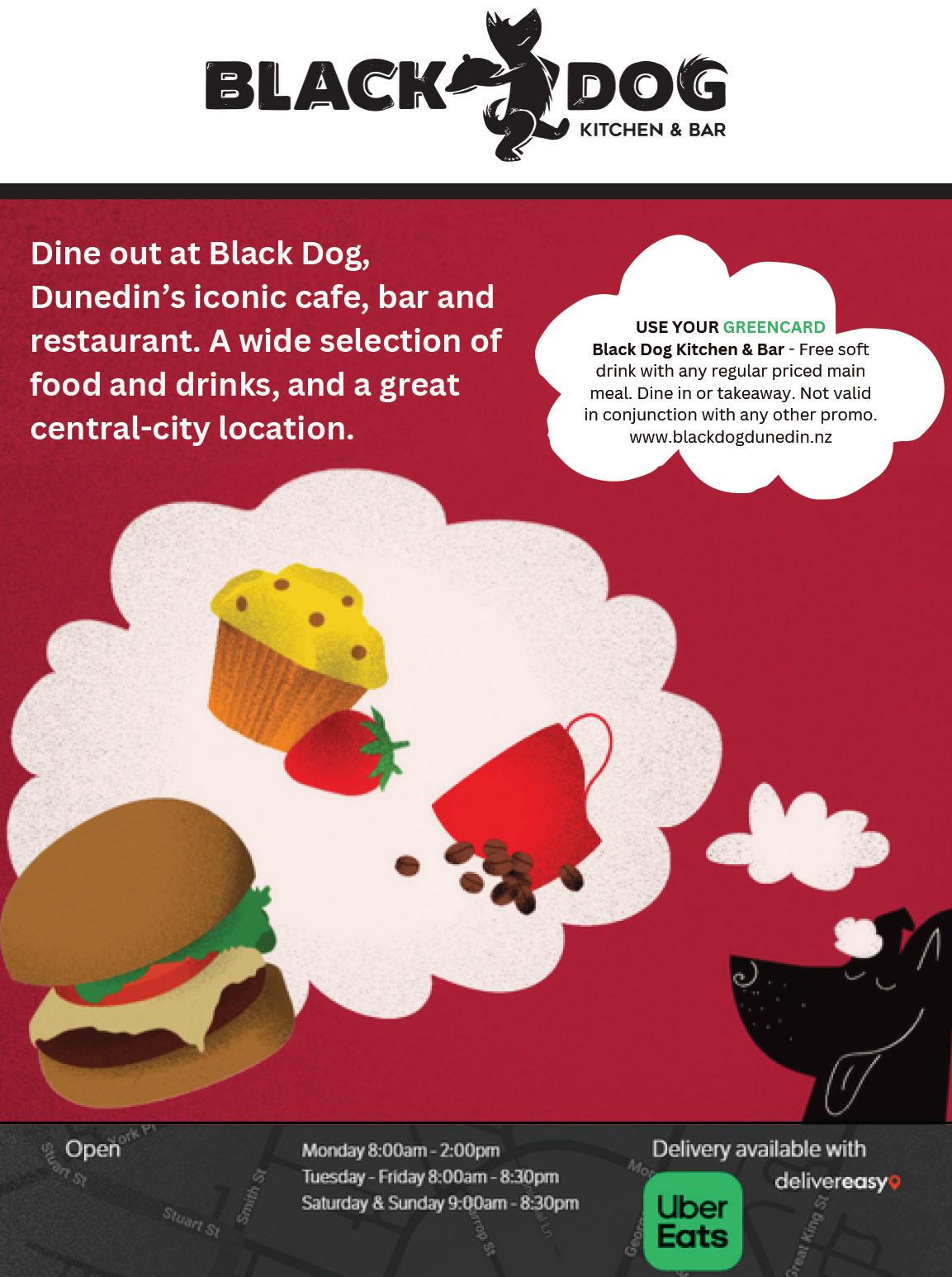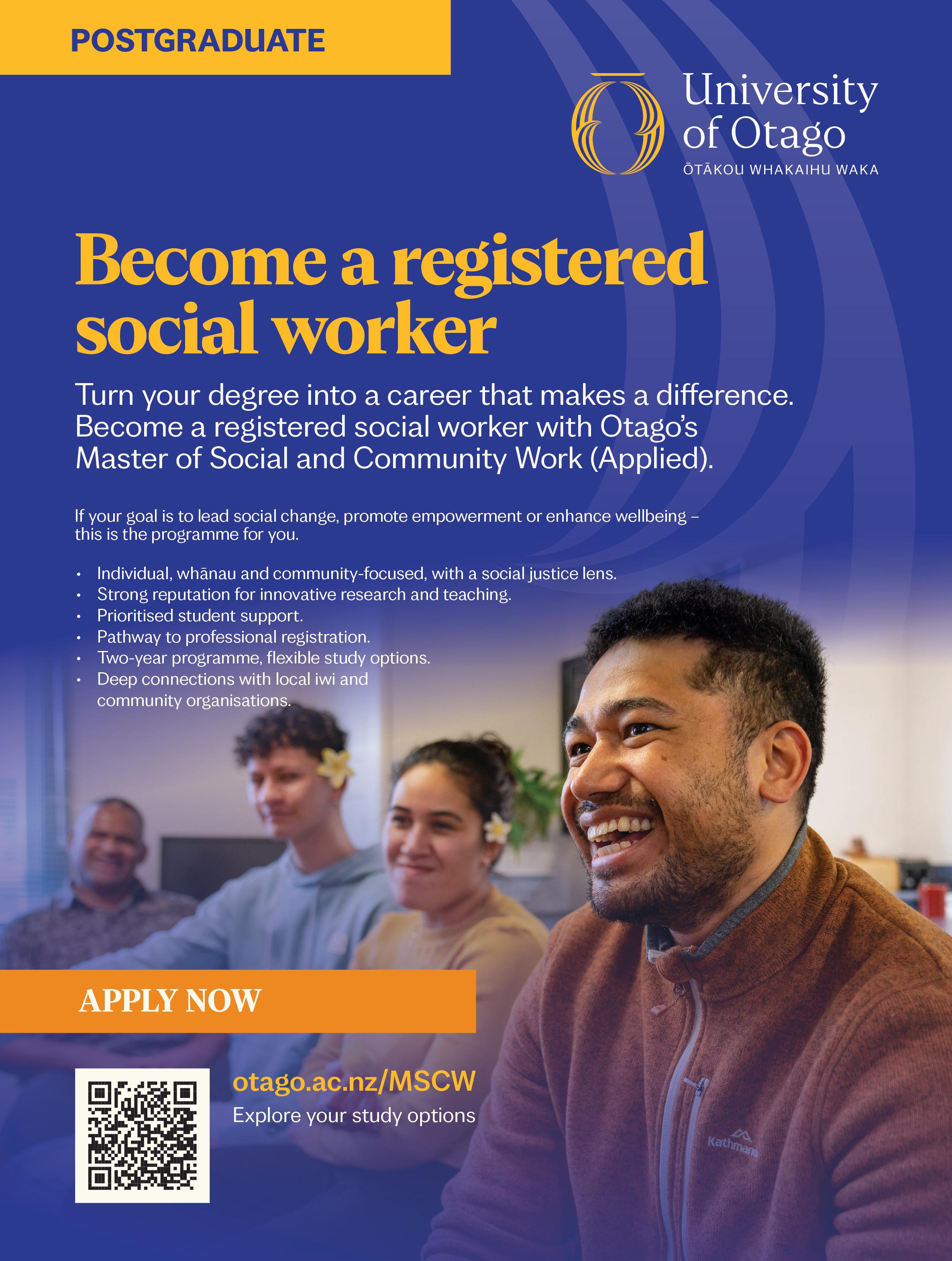
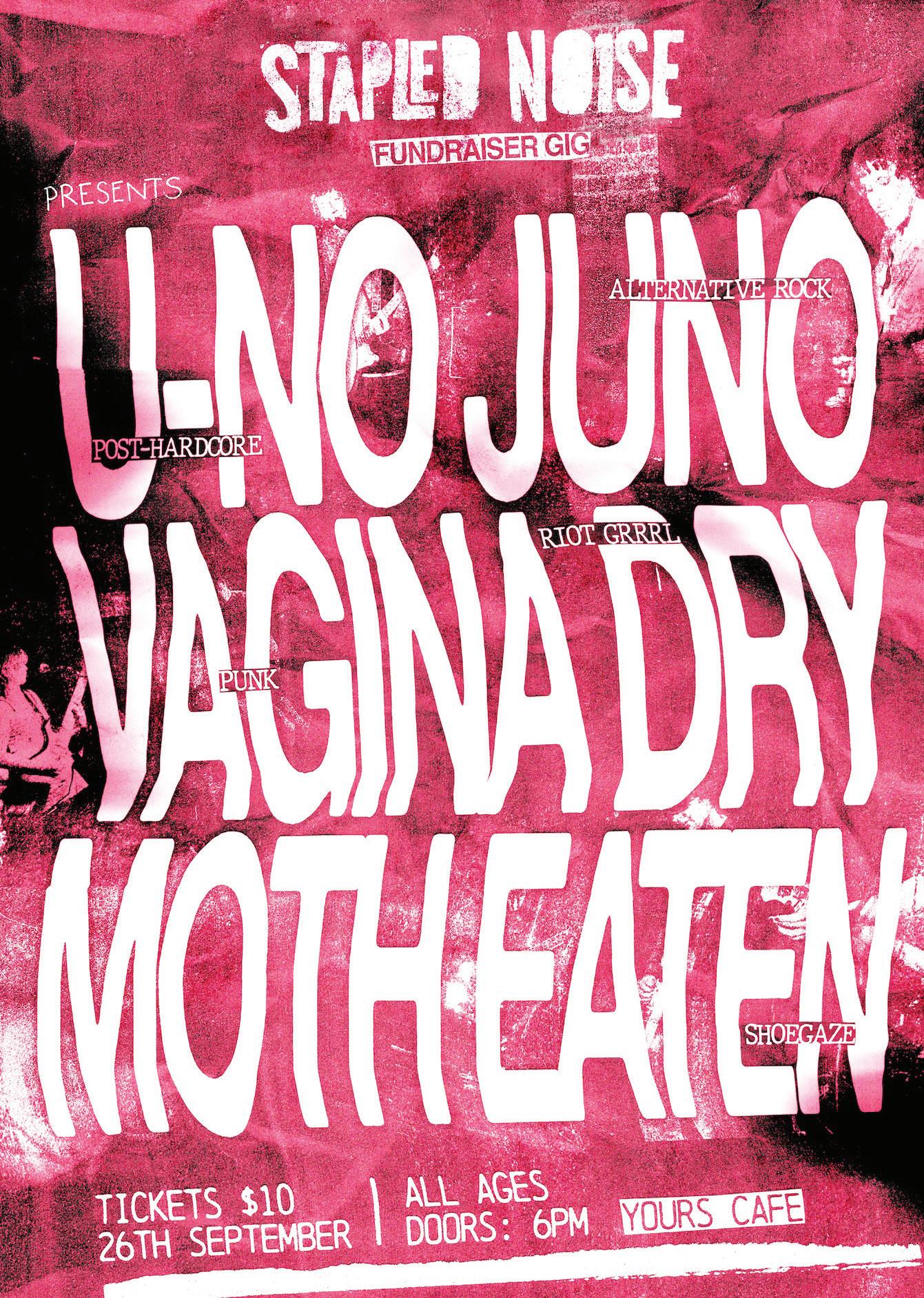





I don’t know about you, but these past couple of weeks have left me reeling. On campus, in wider Ōtepoti, in national and international news (I won’t linger on this one too long), it’s as if whoever runs the simulation has turned up the dial to “hard” and left it going. If it’s left you wanting to curl into a ball and let your brain melt into a puddle, same. But it’s also left me feeling sentimental about the diversity of opportunities and cool shit that happens in little old Duds.
First there were the Local Body Elections forums held on campus. I went to every one and only had enough room in the runsheet to report on the mayoral candidates, complete with a sovereign citizen type, a student who’s campaigning on carpeted streets and chocolate fish currency, and a vampire (a nice one, though). We didn’t even mention the two other forums of candidates, but the talent on display and forward-thinking policies – besides the climate change denier – was uplifting.
Then came the rollercoaster of an OUSA Exec campaign period. After years of OUSA wringing its hands over uncontested candidates with boring campaigns – because what’s the point in going hard when you’re up against Mr No Confidence? – we’ve had the opposite this year. Importantly, the President is a contested position, the first time that’s happened in two election cycles. It hasn’t been clean, per se, but it’s been better than former presidents’ campaigns of sitting on an empty stage before a crowd of three and chatting shit about I don’t even know what.
News Editor Gryffin took 14,000 words of notes last week on the campaigns, and that was about the forums alone. We know you don’t have the time or energy to dedicate to six hours of forums or to trawling through 20 separate campaign accounts. My advice if you’re time poor is to listen to the Radio One recording of the presidential candidates. That’s the biggest one. If your interests are piqued, there’s a summary of the campaigns in news, and blurbs on each candidate in a centrefold pull-out.
If you paid attention, you’d know there’s a good cohort of students in the race this year. Like you, they’ve gone through the trials and tribulations of the StudyLink phone line. They’ve cursed papers that don’t provide lecture recordings and debated the use of ChatGPT for assignments. They’ve scraped mould off their clothes kept in the back of a musty wardrobe. They’ve made the most of OUSA’s free breakfast services after running out of food and transferred money from savings in the Night n’ Day line to afford a post-town pie. And their policies are based on these experiences to advocate for the betterment of their peers’ lives.
Beyond the refreshingly fierce political campaigning, Ōtepoti has been alive with activity. We’ve had celebrations for Te Wiki o Te Reo Māori, the return of Te Rōpū Māori from their Te Huinga Tauira trip, the Otago Pacific Students’ Association Pacific week, a Thursdays in Black ‘What I Was Wearing’ campaign, a pizza eating competition on Castle St, the Dunedin marathon, the NZ Young Writers Festival, the release of local legend IVY’s debut album, and a ski jump competition in the middle of campus. I’m probably missing things, too.
Maybe it’s because I’m coming towards the end of my time in Dunedin soon, but after taking a pause and reflecting on the past couple of weeks, I’d say we’re pretty lucky down here. While the news headlines have been dominated by doom and gloom about the state of the world – there’s been political violence stoking culture wars, opinion pieces arguing you should get out of Aotearoa while you can – our corner of the world isn’t so bad. Happy voting, keep up the good mahi, and make the most of the community, creativity, and chaos in your backyard. Someone get me a box of tissues.
NINA BROWN
Correction: The online version of the news article ‘Students Waiting Weeks for Mental Health Support’ has been amended to correct inaccuracies. Critic Te Ārohi apologises to Student Health for misrepresenting their services, who offer mental health support for students in need.

"Please come up with something sexier"- with those words the monkey's paw curled. North Dunedin was silent as Garfingful Confessions lurched into existence.

Editor’s response: I can’t decide whether I love or hate this. Send letters to the editor to critic@critic.co.nz to be in to win a $25 UBS voucher.
hi critic,
Daniel Leamy, current financials rep and presidential candidate, has cited in his campaign that he made a number of savings to improve the OUSA's operational deficit. I was told recently by a member of the exec, that this campaign has involved the cutting of the executive budget to the tune of around $20,000, by removing pay for December-February. This means there would be no exec operations during the Summer School period, and overall, less time for executives to be trained, to enact policies, and take actions.
This goes against the claims by him and other candidates who associate with him, that all students must be represented by the exec, as there is now no access to the exec for Summer School students.
From Lochlan Hanham
Exec’s response: The Executive unanimously agreed to changes in honorarium payments. Historically, aside from the President, most Executive Officers don’t begin work until February. Executive members only start getting paid once they come into the office for the first time and pick up their keys, so the Executive adjusted the budget to reflect this reality rather than making cuts.
The Executive also unanimously agreed to halve honorariums for December, as student advocacy winds down significantly when the University closes for the Christmas break. This ensures members aren’t paid for work they aren’t doing and reinforces accountability.
If an Executive member works the full 12 months and meets their hour requirements, the Executive can recognise this on a case by case basis.
I don't know if this will be printed, but it is a concerning issue that should be known.
It has been a great week of forums, which has been run super well by radio one (great questions). It has however been disappointing to hear a certain group of candidates constantly make fun and ridicule other candidates' genuine ideas during and after events. I feel like this creates a negative environment for all the candidates running, and deters people from running for OUSA in the future.
Not a culture we want to foster,
a lover of fair, fun elections for everybody
Editor’s response: Definitely agree that Exec elections should be an enjoyable time for all.
Dear Critic,
Did you actually cancel the column for moaningful because of that previous person's letter?
Or did someone just rip it out of the one I am reading??
From a confused person who reads it because my romantic life is dead.
Editor’s response: Don’t worry, it just went on temporary hiatus for the Te Wiki o Te Reo Māori issue <3
Letters should be 150 words or fewer. The deadline is Thursday at 5pm. Get them into Critic by emailing us at critic@critic.co.nz. Letters of a serious nature directly addressing a specific group or individual will not be published under a pseudonym, except in extraordinary circumstances as negotiated with the Editor. Critic Te Ārohi reserves the right to edit, abridge, or decline letters without explanation. Frequently published correspondents in particular may find their letters abridged or excluded. Defamatory or otherwise illegal material will not be printed. We don’t fix the spelling or grammar in letters. If a letter writer looks stupid, it’s because they are.
An injunction preventing the media from publishing certain details related to the investigation into Tom Phillips and his family remains in place, to be rediscussed in the High Court on October 17th
Nepal's new leader was decided through a virtual poll on Discord, just days after the dissolution of parliament was triggered by predominantly youth-led protests
Former Finance Minister Roger Douglas has called for current Finance Minister Nicola Willis to resign, arguing she’s sending NZ bankrupt by “failing to get to grips with our ballooning fiscal deficits and public debt,” RNZ reports
Laneway Festival announced Chappell Roan will be headlining next year, taking place on Thursday February 5th. Critic heard screams from Radio One when the news broke
The financially stretched University of Otago is proposing to further “streamline papers to meet market needs” and further increase student numbers. Some have criticised their “bums on seats” model, the ODT reports
It was an almost half marathon for many at the Emerson’s Dunedin Marathon after a marshal failed to show up, meaning some fell 600 metres short after not taking the right turn, the ODT reports
United Nations investigators have determined that Israel is committing genocide in Gaza since October, 2023 with the “intent to destroy the Palestinians” in the territory. Many around the world responded: “Duh”
It was an almost half marathon for many at the Emerson’s Dunedin Marathon after a marshal failed to show up, meaning some fell 600 metres short after not taking the right turn, the ODT reports
Voting for Bird of the Year is open! The OUSA Exec’s top-running bird is the Kea, but you can vote for five –closing at 5pm on Sunday, September 28th.
Abuse against women in local government made headlines last week. The Spinoff reported that the current abuse aimed at Wellington City Council’s Rebecca Matthews acted as a grim reminder of a general trend pushing women out of political roles
Fiery Exec Campaigns “Healthy Democracy” 6 Thursdays in Black Hosts ‘What I Was Wearing’ Exhibit 8
Rail Jam: Bringing the Ski Slope and the Stoke onto Campus 9
Alumni Fly From Afar to Settle 20-Year-Old Boozy Bet 10
Castle Packs out for Pizza Eating Comp 11
Law’s (Objectively) Hardest 200-Level Paper Goes Open Book 11 CULTURE
Nurses turned their back on the Health Minister during his speech at the annual New Zealand Nurses Organisation (NZNO) conference, coming in the wake of a report revealing hospitals nationwide were short ~600 nurses per shift over the past year, 1News reports
ABC pulls Jimmy Kimmel off air for comments made about Charlie Kirk’s assisination following pressure from the US Federal Communications Commission
Radio One market day is on this Wednesday, September 24th beside Union Lawn
Three packets of matcha went missing from the Otago Asian Law Students' Association Office. Culprit unknown. Labubu and Clairo vinyl owners remain vigilant
It’s election season for the OUSA Executive. With 20 candidates vying for a position in 2026, three lunch-time forums were held last week to provide the opportunity for candidates to share their policies. Knowing most students don’t have the capacity to sit through six hours of politicking, or follow the daily posts of each candidates’ campaign Instagram pages, Critic Te Ārohi has compressed 14,000 words of notes on the contested positions into a summary of a campaign period that’s seen more drama (read: “healthy democracy”) than the season finale of The Summer I Turned Pretty. Grab your popcorn.
For the first time in three years, students will have a choice of candidates for President. Current President Liam White and Finance & Strategy Officer Daniel Leamy are running for the full-time role at the helm of OUSA, responsible for leading the Executive, representing Otago students in the media, and steering the ship of student advocacy in Ōtepoti. It’s been a tight and somewhat tense race, butting heads both at the Monday forum and on-air in a Radio One interview with not-so-subtle jabs.
Liam has campaigned on experience. He introduced himself to the 50 or so people present at the forum as having been around for a “long Grandad time”. Liam wants to build OUSA into a “real, genuine student union” and build off long-term campaign plans he’s drafted in his current presidency. After Liam was cut off for going overtime in his intro (a typical move for the certified yapper), Daniel said, “Give me the keys. I’ll take the wheel. Let’s do something with OUSA.” Inspired. His priorities are being practical and realistic about what he could achieve as President, with a duty of care to keeping OUSA afloat and able to serve students.
Questions for the duo ranged from their vision for OUSA, to which former Presidents they took inspiration from. The latter prompted the first sign of banter (we think) when Daniel joked to Liam, “I wouldn’t say you mate,” before pining after former President Keegan Wells – a tough act to follow, Liam admitted. In terms of their policies, Daniel has a three-pronged approach to presidency: holding landlords accountable, cost of living support, and student bars (Liam accused Daniel of stealing the latter). Liam’s priorities are independence, bold action, and community.
A forum that began in somewhat good spirits suffered over a few sore spots for the pair. First came the question of the Exec’s wellpublicised “kerfuffle” in adopting a BDS policy. Liam was shaking his head with a frown as Daniel told the audience that he’d always been in support of a “where we can” BDS policy, admitting that the motion to abandon it was “rushed” and pointed out that Liam was the one to have called it. While true, Liam clarified that he’d noted his discomfort with the decision, wanting to seek further consultation. He accused Daniel of being a “liar” and “underhanded” in making that comment.
The second tense moment came when they were asked how to ensure that the Executive works as a united team. Liam was the first to answer, saying that he’s learned this year that it’s important to support the people first. “The Exec needs to know the President has their back no matter what,” he said, while Daniel looked as if he’d swallowed a bug. For context, earlier this semester, Liam went off-script in the SGM over BDS where he had meant to speak on behalf of the Exec. He surprised his Exec by speaking “as a student” in support of the motion, and Daniel was forced to make an impromptu speech to speak to the Exec’s initial decision – something he told Liam at a following meeting that he “didn’t appreciate”.
Other juicy tidbits came from their Radio One interview (available on their website). Asked about the role of student media in
By Nina Brown & Gryffin Blockley Editor & News Editor // news@critic.co.nz
relation to the Exec, they agreed over Critic Te Ārohi’s important function of holding the Exec accountable. However, they disagreed on its current state. Liam reckoned the relationship is currently “too close” which “isn’t healthy”. He voiced his “serious concern” if Sam were to be successful in his campaign for Admin Vice-President, saying his close relationship with Critic staff as a current contributor might result in a "propagandist regime” (excuse you). Daniel disagreed, coming to the defence of his co-campaigner. Current staff both respect personal and professional boundaries, in his opinion. “I trust the Exec and Critic to hold each other accountable when needed and be friends when needed, too,” he said.
The Admin Vice President (AVP) is a race between Kamesha Jones, Sam Smith-Soppet, and Tate Agnew. Kamesha is the current OUTC President, bringing experience of running one of the biggest clubs on campus, wrangling its exec, and organising the many trips that OUTC runs. Sam’s name might ring some bells from his widespread involvement in Critic Te Ārohi and Radio One, making sure to note he has also become familiar with the current Exec (giving nepo baby). Tate dumped a CV that would make any LinkedIn warrior envious, with involvement in numerous environmental clubs and the Ministry of Environment.
A key part of the AVP’s role is student engagement. It’s an issue many Execs have grappled with; the three were asked what they would do to address this – beyond rage-baiting. Sam pitched student internships within the different departments for awareness of OUSA’s operations and career opportunities. Kamesha would like to see monthly forums in order to have in-person connections with the Exec and their constituents, which Tate reckoned sounded swell.
Things heated up during question time from the crowd. First came a question addressed to Sam alone, pointing out that while he was running alongside Daniel in a joint campaign, he’d posted something about making cuts, while Daniel has said there wouldn’t be any under his leadership. Was there an inconsistency in their campaign? Sam didn’t attempt to defend the post, simply saying that he’d made the post late at night while tired. “I’m human, I’m not a machine,” he said. From the crowd, Liam yelled, “Cop out!” Seeing an opportunity, Kamesha took the mic and added, “When it comes to AVP, the specific words you use really matter, so we need to make sure we have an AVP who isn’t going to miss a specific word.” Damn.
Another question cheekily asked which President each of the AVP candidates would be voting for. During the forum, Liam had hard-launched a ‘ticket’ of candidates that were running together – in competition with Daniel and Sam’s joint campaign – including Kamesha. She answered that she had chatted to Liam and was aligned with his political vision, but she also thought Daniel would make a good president and was fully prepared to work with him as well. Sam’s answer was Daniel, elaborating that this year under Liam’s leadership has been “telling” and “unproductive”. Tate answered Liam, but wasn’t fully aligned with anyone.
Since the forum, Liam’s ticket has disbanded following revelations that he jumped the gun on the post, going against the wishes of independent candidates. It included eight candidates who he’d invited to his flat at the beginning of the week to chat about collaboration on campaigns. Having run two campaigns prior, Liam told the newbies that he would be happy to lend his experience and campaign tools – including an enticing Canva subscription. Allegedly, he also warned the selected candidates of his opponent Daniel’s supposed plans for cuts to OUSA should he win the presidency, including equity services. Daniel confirmed
to Critic Te Ārohi that this is false, and of all people knows that the President has no power over the operational budget of OUSA.
The candidate group agreed that they would not like theoretical cuts to be made to services, and that they would support a post indicating this. What they did not agree to, however, was to be on a ticket with Liam. This didn’t stop him from repeatedly mentioning his supposed “ticket” throughout his campaign, with some commentators speculating it’s a strategy to gain their voter bases. “I get why people might see it that way, but honestly the way you actually win votes is by getting your message in front of students not just through Instagram reposts,” replied Liam. He’s now actively campaigning with Troy, whilst “cross-endorsing” with other candidates.
It’s a two horse race for Finance and Strategy Officer (FSO) between Dominic Sarelius and Troy Gibbons. Troy reckons he’s fit for the role thanks to his accounting degree and being treasurer of three clubs, while Dominic’s CV includes being on the Politics Students Association executive. Despite their competition, they are united by a love for Microsoft Excel and hatred for Google Sheets.
Dominic reckoned the most important part of the role is managing the OUSA Exec’s budget, while Troy pointed out that the ‘strategy’ part of the role is often forgotten about. Asked about their financial strategy for next year, both cited OUSA’s deficit – $680k last year. Dominic listed smart, long-term spending to help close the financial hole. The two also agreed on the need to increase transparency and communication of financial decisions to tauira. Troy said, “OUSA needs to be more transparent. Students are really disengaged right now.” Dominic concurred, saying OUSA needed more exec engagement.
But it wasn’t all agreement. Each had a different take on the first place they’d look to for savings should OUSA’s financial situation go south. Well, more south. Troy’s idea was to march up to Grant’s office and tell him OUSA needed help. Dominic took the selfconfessed “cop out” answer saying, “The exec budget, it is $250k. Not the biggest, but doesn't affect students as much.” He’d trim that up a tad. Prepared to dive head first into OUSA’s balance sheets, they both described OUSA as a TV show episode: Troy saying the finale of Breaking Bad (“almost post apocalyptic”). Dominic took a similarly cynical answer: the last season of Clone Wars (“everything falling to shit”). Nothing like a healthy dose of optimism.
Harry Almey and Hansini Wijekoon are squaring up to take on the 20-hour Academic Rep role in a battle by proxy between Critic Te Ārohi and Radio One, being volunteers for each respectively. Both boast of the transferable skills they have gained from their time at Ōtākou Whakaihu Waka. Harry’s degree and writing has built his interpersonal skills, while Hansini points to her experience on the Society of Otago University Law Students (SOULS) exec as having given her experience with academic advocacy.
Asked about the biggest academic issues facing students, Harry pointed to a lack of awareness of academic services the University provides, while Hansini answered the lack of paid placements for degrees such as physiotherapy. To increase engagement, Harry wants to have weekly meet-ups in the Link, admitting it’s not a “star spangled idea”. Hansini wants to focus on achieving smaller-scale issues with “plausible promises,” such as fee discrepancies in papers. Of all the candidates’ forums, Harry and Hansini objectively agreed the most – except when cheekily asked what degree had the lowest IQ. Harry savagely answered BComs while Hansini was more neutral, saying all degrees were valuable – before adding theatre might be her pick (Harry’s major). Banter.
Rihana Warsame and Liam Melvin are your candidates for Welfare and Equity Rep. Through his lived experience, Liam is passionate about instituting a Disabled Students Rep on the Exec – which 54.9% of students voted for in this year’s OUSA Referendum –and building a stronger relationship with the local and national branches of the National Disabled Students’ Association (NDSA). Rihana is keen to foster a diverse campus where all groups are represented, and address the drop-off in support many students feel they face after first year.
In the race for Political Rep is Silly Hat Mayoral Candidate Flynn Nisbett (dropping the silly hat and getting serious for OUSA); Fergus Parks (otherwise known as the ‘Campus Banksy’ after postering campus to call for current Pols Rep Jett to resign in July); and Harry Almey (Critic contributor who’s “passionate and angry” about the current state of politics).
Flynn has bold visions for the Exec, believing OUSA should “not necessarily be politically neutral” like it currently is, and wants to move away from the “individualistic” way of thinking that puts the onus on students to engage with politics, arguing it should be the other way around. Harry wants to increase engagement through his campaign-signature drop-in clinics at the Link, put pressure on the Government to stop University funding cuts, and write lots of submissions – something he does already in his spare time. For Fergus, he wants to hop on either a soap box or a beer crate on campus to canvas student opinion in order to appropriately represent their political views: “United we stand, divided we fall.”
What they agreed on: a strong implication that the current Political Rep’s conflict of interest kerfuffle had motivated them to run. What they disagreed on: whether a ‘fees free’ campaign was realistic. Flynn said yes, Harry said no. Over to the students to decide.
Zoe Eckhoff and Tyler Wichman are facing off for Residential Rep. Zoe brings to the table a well-publicised nightmare tenancy with a certain infamous Ōtepoti landlord, while Tyler boasts a history of advocacy. They agreed on a lot of points, including applying pressure to higher-ups for a rental warrant-of-fitness scheme, but with different pathways to get there. Zoe is keen to advocate for the Dunedin City Council (DCC) to get a stronger relationship with the Ministry of Business, Innovation and Employment (MBIE). Her vision is based on Wellington’s council, who provides the opportunity for anonymous flat inspections from MBIE.
On the other hand, Tyler reckons working more directly with the DCC will be more effective because the central Government may not be as co-operative. He proposed the idea of “random, but voluntary” flat inspections run by the DCC and an anonymous website where you could rate landlords and flats. Zoe proposed a green sticker system (rewarding good flats) and pamphlets to notify tauira of flat availability and experiences. Both of them are keen to increase exposure of the role, including lots of hall visits for freshers as they navigate the transition to flatting.
AVP candidate and Tramping Club Prezzie Kamesha is also running for Clubs and Socs against Ella Mary Sangster, member of many clubs and former Co-Director of Thursdays in Black (TiB). Asked about the biggest issue facing clubs, Kamesha points to the struggle of securing funding for both big and small clubs, while Ella is keen to see more support in building club and financial management skills and resources. Both are passionate about increasing club visibility on campus – whether that be ‘hall-bashing’ (going to halls to beg freshers to join your club), collaboration between smaller clubs, or creating new channels of collaboration and communications between club reps.
School uniforms, PJs, and lingerie dispel victim-blaming culture
Content Warning: Sexual violence, child sexual abuse, rape, intimate partner violence
Following their recent success in the second annual Sex Quiz fundraiser, the Thursdays in Black exec held the What I Was Wearing exhibit in the Main Common Room last week between Wednesday and Friday.
Rata (events coordinator) and Elle (co-director) explained to Critic Te Ārohi that the idea behind ‘What I Was Wearing’ is that a lot of survivors often get asked, “Well, what were you wearing?” It’s a question that implies it’s the victim’s fault. “As if that’s some kind of justification for harming somebody – like maybe if they were wearing a more revealing outfit or something,” she said.
The Thursdays in Black Otago branch have been hosting the event for a few years now, a movement working towards a world free from sexual violence. The outfits displayed ranged from work and school uniforms, oversized t-shirts, pajama sets, and lingerie. The wide variety dispels the myth that clothing has anything to do with sexual harm. “We know what you wear doesn’t cause you to be sexually harmed,” Rata said. “That’s simply not true.”
Many students wandered past the Main Common Room last week to see the TiB team. For the exhibit, the exec secured twenty display boards to visually represent the stories of sixteen survivors, alongside media submissions – something Rata described as “wholesome”. The media submissions included poems, art, and
By Hanna Varrs Features Editor // features@critic.co.nz
songs that uplifted survivors. “Reading through all of that stuff does take the edge off such a dark topic,” Rata said, with some works noting that the survivor was doing much better since.
Submissions for the exhibition were made through a form that allowed Rata and Elle to reconstruct many of the outfits using clothes from Habitat for Humanity and Red Cross. “We had to use our imagination a bit,” the pair explained. The effect is confronting, but grounds the exhibit. Survivors dress for all walks of life.
With such a confronting undertaking, both referenced the throes of ACC therapy that ultimately prepped them with the mental tools to undertake a project like this. “It is always pretty devastating op-shopping for children’s clothes, knowing that this is what someone was raped in,” they said. But Rata said that knowing that they're doing it for a great purpose alongside an exec with the “right heart” made sure that they weren’t emotionally burnt out from the process.
The most rewarding part for the duo was knowing that people trust TiB with these stories. “It’s great to know that we’re enough of a safe space, that we’re doing our job well enough, that they can hand them in,” said Elle. She also loves the sticky notes that guests have an option to pin up on the display boards; she saved one from last year that simply says “chur, my bro”. “Real,” Elle said. “Thanks for writing that, diva.”
Critic Te Ārohi says a big chur to a world without sexual harm.

by
Ripping lines in the middle of campus has never felt more vindicating
The forecasts were true. It was a snowy day on Union lawn last Thursday. Yeehaw! Twenty two tonnes of snow landed on Union Lawn on Thursday the 18th of September ready for punters to carve some fresh lines in the midst of a bustling campus. There was no better chance for ski bums to prove why they’d been skipping lectures for the slopes.
Rail Jam was an event set up in partnership with Red Bull and the Otago University Snow Sports Club (OUSSC). Twenty-four metres of scaffolding were erected in the middle of campus to support a set of slopes where eager punters could send their gnarliest tricks. Punters across campus gathered around the sidelines to cheer on their mates and get amongst the magic. We get that the drive to Wānaka is a bit of a ceebs, but they didn’t have to bring the slope to campus.
While some punters shot down the slopes to get a thrill, others were in it to win it. Critic Te Ārohi spoke with Caoimhe Heavey, who came first place in the female skiing category, chuffed to win a pair of Smith branded ski goggles. The Canadian athlete drove over to Ōtepoti with a group of mates hoping to get amongst the stoke. Oh how the turns have tabled, now the Wānaka folk are coming to Dunedin for the powder. She gloated about hitting a K-fed maneuver, a trick she did "for the people”. A K-fed is when the rider pulls a front swap followed by a blind 270° out on a rail or box. In layman's terms: it looked pretty cool.
Surprisingly, transporting twenty-two tonnes of snow into Dunedin is kinda hard. They originally planned to import their snow from Mount Dobson, but had to switch suppliers over to Ōhau Ski Field after a high wind warning. Former OUSSC-President and event organiser Peter Barlcay was super thankful to the Ōhau staff who shoveled and trucked around snow “for two whole days to try and get us enough snow.”
The group of tradies began constructing the scaffolding on Wednesday morning. Those who braved the 30-minute Pint Night

By Jonathan McCabe Staff Writer // news@critic.co.nz
queue were treated to the spectacle of a bickering Red Bullfueled buffoon’s flawless assembly. A bunch of inpatient breathas were caught snatching a few Red Bulls when they had the chance. Mindful of students’ kleptomaniac streak around construction sites, the organisers erred on the side of caution and hired two security guards to stand watch overnight.
Another problem arose earlier on Ōhau. Peter told Critic that some of the snow “froze to the sides of the truck on the mountain” making it harder to transport it out. Through this experience, Peter learned that “you are going to have problems,” but they will never be the ones you expect.
Back in Dunedin, 6am on Thursday morning there were thirty volunteers on site waiting to get the snow on the ground. But when the trucks arrived on campus, the floodgates burst. As the backgates opened a waterfall of snowmelt dramatically escaped onto the concrete outside Auahi Ora. Though it caused a brief scare, there was still enough powder to keep the show on the road. Peter commented that “any less snow would've been catastrophic but it was the perfect amount to run a three and a half hour comp.”
Throughout the event, Union Lawn experienced four seasons in one day. While rain and hail swarmed into the event the punters stood strong, crowding the Union Building balcony for a better viewpoint. One of the athletes, Loise, adamantly told Critic, “We’re not made of sugar, so we won’t melt.” The snow might, though.
As many wipeouts as there were, Critic heard no word of any injuries. As one punter wryly noted, if OUSSC can pull this together with a month of preparation “give them two and they’ll overthrow the government.” The organisers celebrated the event’s success with an unrivaled cleanup effort. The leftover snow was distributed across OUSSC baddies’ backyards who were keen to continue the stoke.

Beers, bravado, and Boney M.
Born out of a drunken argument over who was slower, Otago alumni Blake Plummer and Jolyon Swinburn agreed to race in a marathon at age 40. The boys cracked open a cold one as they told Critic Te Ārohi the story of a 20-year-old drunken bet that brought them back to their alma mater for the Emerson’s Dunedin Marathon on September 14th, built on the pillars of 2000s student life – beer, bravado, and Boney M.
Blake warned that details were admittedly hazy of how it all started (it was the era of corner store party pills, after all). One version of the story happened in 2008 at a Boney M. themed flat party on Clark Street to celebrate having won OUSA’s Flat of the Year award. The flat was a mansion with “beautiful views” of the Harbour, housing seven or eight of them, but they reckoned the win was based on “vibes” by judge Aaron Hawkins (Radio One Breakfast Host at the time). They spent their Countdown vouchers prize on beer for the party.
While hanging out in the kitchen dressed in fur coats and with ‘Rasputin’ playing on repeat in the neighbouring room, Blake made a “snarky comment” aimed at Jo: “I might be slow, but at least I’m not as slow as Jo.” Jo wasn’t having it. “I’m like, hold on, hold on,” he laughed. “I just took a stand.” They assured Critic it was part of a “healthy” ongoing competitiveness. “Small men with big egos,” their mate Simon chipped in from across the room, nursing a Tuatara Hazy. “Not backing it up with actual physical ability or talent, I would say.”
Turning to Blake at the time, Jo told him to name a distance and when. It was settled: a marathon when they’re both 40. Neither were runners at the time and weren’t keen to “change our lifestyle that much”, and the thought didn’t occur to them to simply sprint 100 metres down the street. “We probably should have in hindsight, we could have gotten it over right then and there,” said Blake. Pausing, he added, “But then we wouldn’t all be here today. So our stupidity has turned out for the best, I think” (aw).
While these sorts of drunken, midnight bets tend to have zero follow-through, the boys were committed. “I think we’re dead serious in the moment,” said Jo, “and I vaguely remember having a sinking feeling the next day waking up [and remembering] what we’d agreed upon.” That sinking feeling was confirmed when they realised others were there to witness the terms of the bet, and in the years to come would consistently remind them of it. “We put our money where our mouth is,” said Jo, and both cracked into
training as the date approached.
By Nina Brown Editor // news@critic.co.nz
Coming back to “the source”, as they put it, had sparked memories for the cohort of 30 alumni who’d flown into town from as far as New York and Japan for the occasion. While out for dinner the night after arriving, the group shared one story that still drew giggles around the room as Blake rehashed it to Critic. There had been one friend in their circle who’d been the go-between for an on-again, off-again couple (happens). One particular night, he’d been a shoulder to cry on for a few hours, and then when he got back to the flat he realised that they were together upstairs. “And he was just not having it,” said Blake. “He couldn’t abide by it.”
Earlier that day, one flattie had bought a 10kg bag of flour, despite not much baking being done in the flat (according to flat economics of bulk buying). “So he goes upstairs with his 10kg bag of flour, stands on top of the bed where they’re in the middle of coitus, and empties the contents all over them,” laughed Blake. “We were all standing around in the kitchen having beers, and our jaws were on the floor. I’ve never heard silence like it.” A “thump, thump, thump” down the stairs was followed by the ghostly figure of their mate, who spent the next hour or so going up and down “just muttering to himself”. The offending couple are now happily married with three kids – which the flour-dumper takes full credit for. “He still thinks he’s in the right,” said Jo.
The legendary antics of the grad group linger into 2025. The original stakes for the bet was $15k, but that was later amended to shouting dinner for the group (amassing to $1k, including spenny bottles of wine), another marathon in the next year, and a Dunedin-themed tattoo (they’re open to suggestions). Sadly, however, Blake was relegated to cheerleading duty on the day after blowing out his calf in his last training run before the race. And yes, they’re still making him get a tattoo – his first, and to the surprise of his wife when it was brought up in their group chat, telling Stuff in an interview she’d be consulted on the final design.
Despite the disappointing result for Blake, the crew were chuffed with how it had turned out. “It is an extra big effort which I think speaks to what the bet’s about: the bonds of friendship amongst the group, and they haven’t let this die,” said Blake. “So as much as it is about running a stupidly long distance, it’s also a very good excuse to get together because it’s rare that we all catch up like this, obviously these days with people all over the place.”

Suburbia has extended their dominance over students’ Saturday nights into the following day by hosting a Biggies Pizza (Sub’s day-time persona) eating competition on Sunday, September 13th. Hosted at the infamous Courtyard flat, roughly 21 nominees from various Castle St flats attempted to take on a 20 inch pizza for the cash prize of $1000, free Biggies Pizza for a year, and some Red Bull (mint).
Despite the less-than-accessible set up that prompted complaints from the outer ring of students who couldn’t see shit, it was relatively enjoyable. Each contestant sat in front of a bottle of blue Gatorade, their pizza of choice, and the occasional bucket for safety (we didn’t hope someone would vomit, but we didn’t not hope either). Anything for some free kai, right?
But before the games could even begin, the crack of a Gatorade bottle opening sung out through attentive taringa, and eyes shot to the guilty competitor. Tsk tsk. He was subsequently damned to finish the entire bottle before having a new one replaced so the games could commence. Our pizza eating fiends weren’t taking any prisoners. Everyone was then told to raise their hands behind their heads for fairness’ sake.
The crowd chanted “3…2…1…GO!” And away they went. Eyes filled with fury and passion, each contestant went “ham” for all 20
By Zoe Eckhoff Staff Writer // news@critic.co.nz
inches. While some contestants chose a more enjoyable pizza with more toppings (a great opportunity for more than a value pizza) others opted for the cheese pizza (for efficiency). The most common consumption strategy was folding pizza slices in half or stacking them on top of each other.
The optimistic fighting spirit dwindled towards the end. Contestants held in cheese-induced vomit and the crowd's eyes were locked on some guy, a majestic fellow (no one could tell Critic Te Ārohi who he was), who at 8 mins 40 secs had finished demolishing his 20 inch pizza – and had set a new Biggies record. Two people vomited around this time, one of whom was wearing a shrimp costume (shrimply unfortunate).
Hope drained from his fellow contestants eyes and it became a sorrowful race for second and third. In the end, the mystery man with his new pizza eating record paraded the Courtyard with delight – comically large cheque in hand. His only comment to Critic? “Unreal.”
Aside from that, the only other eventful happening was the flat wearing white shirts with ‘Pizza’ sharpied on the front won best costume and got to take home a Pepsi-themed cornhole. Unreal indeed.
TW: Second Year Law
In second-year Law, students are put through the wringer with four full-year papers: Criminal Law, Law of Contract, Property Law, and Public Law. Usually, the exams are closed-book, but for 2025 LAWS203 (Property Law) is now set to be an open-book exam.
The Faculty of Law cites the change as “[clarifying] to students that the exam’s focus is on applying legal principles to new problems, rather than memorising content.” While this change might seem trivial, Property Law has been regarded as the hardest of the four papers. It boasts the lowest average grade across the 200-level papers (excluding fails). In 2024, the average grade was 67.53%. For Criminal, this was 71.36%; Contract was 71.93%; and Public was 71.16%. Similarly, in 2023, Property also had the lowest average at 66.93%.
For now, it remains uncertain whether the other three exams will
By Gabe Jonson Contributor // news@critic.co.nz
also change. One Law student Critic spoke to suggested that the change should be standardised across them all. Comparatively, at both the 300 and 400 levels Law exams are typically open book, but still written and structured in a way that enables them to be challenging. In 2021, for example, when Property Law was last open-book – an exception made due to Covid-19 – the average grade was still a B- at 68.96%.
Ultimately, the open-book change seems a welcome one. Fifthyear Law student Oriah said, “[Just] because past students have struggled with second-year or faced bad grades, doesn’t mean future students should have to face the same […] Just like our legal system, legal education should remain ambulatory.” But for this year, it looks like second-year Law tauira can delete their Quizlets, while realistically knowing it won’t magically make the exam a piece of piss.




PŪRĀKAU
RANGATAHI
16. URU 19. METE 21. WHAKAIRO 22. UTOPIAN 24. TŪPUNA 26. TRAUMA 28. PŪTATARA 30. MOKOPUNA 33. WAPITI 34. HITORI 36. TANIWHA 37. TIRAMISU 38. HOPE 40. HUI 42. KŌRERO 43. WHAKAPAPA 46. WAITAKI 48. MANA 49. KAIĀRAHI 50. TE TAI TONGA
DOWN: 1. TE WAIPOUNAMU 3. NGĀ 5. UNSG 6. AUNTIE 7. OUR 9. KŌRERO TUKU IHO 10. PUKU 11. KURA KAUPAPA MāORI 12. KUPU 15. MAHARA 17. MITA 18. DOT 20. TANGATA WHENUA 23. ARAU 25. PUA 27. TANGATA MOANA 29. TAUA 31. PIO 32. A TASTE 33. WERO 35. ITI 39. PŪKANA 40. HOKI 41. IWI 44. PEPPER 45. AWA 47. TIT




By Stella Weston

Disclaimer: I’m really super biased — this was one of the coolest things I’ve ever had the privilege of being a part of.
The New Zealand Young Writers Festival celebrated its eleventh year in 2025. Beyond promoting the voices of young writers aged 15-35 over the weekend of September 13th, the festival team this year aimed to centre the festival in tikanga and Te ao Māori. Produced by Dunedin Fringe, NZYWF involved the usual public line up of workshops and panels, but for the first time it also included a wānaka held at Puketeraki Marae in Karitāne.
Selected young writers spent three days under a tuakana/ teina model — combining peer mentorship, creative inspiration, and skill-building. Tuakana writers included Josiah Morgan, Ruby Macomber, Rauhina Scott-Fyfe, and Young Writer in Residence Nick Tipa who had the pleasure of spending two weeks writing at the Robert Lord Writers Cottage here in Ōtepoti.
“Over the past few years, the NZYWF has already felt like a giant wānaka for writers from across the country to converge in Ōtepoti,” Josiah noted before the festival. Making this into a reality with 20 young writers was hugely successful, and the community that emerged was beautiful to see, and even more beautiful to be a part of.
Learning about writing through a tikanga Māori lens was hugely important for me, as well as exploring ideas of context and history, both in terms of land and applying this to my own writing. This entire experience took me out of my comfort zone, and not just because I had to wake up at 6:30am for the sunrise instead of my usual noon. Learning and discussing forms of writing I hadn’t tried before, like poetry and personal essays, and discussing everything from habits to craft with people my own age was absolutely invaluable.
The writers there were abuzz with appreciation for the experience. Making space for creatives to “just be creatives” secluded from the outside world was especially important. “It was so special and so rare and such a privilege to be involved in,” said Helena Leon Mayer, one of the writers in attendance.
The weekend itself featured an evening of presenting writing to one another and events on slam poetry, personal narrative and whakapapabased writing, zine-making, and a panel on publishing insights. Overall, it truly was a dynamic weekend of literary exploration.
“It's been such an incredible time. Every year we are so blown away by the talent and passion of the next generation of literary talent in Aotearoa,” commented Fringe Co-Director and Creative Producer Kate Schrader. “This year was no exception.” The whole team at Fringe were absolutely incredible, especially Kate, Katrina Thomson, and Ruth Harvey.
Te Awhirēinga, who performed her work for the first time during the wānaka and later became the Slam Poetry Champion, encouraged, “Do all the things you haven’t done before because there is a beautiful community here that can catch you if anything goes wrong. Practice your art, whatever it is. Even if you’re new at it, keep it alive.”
To get sappy for a moment, being surrounded by so much passion and talent – especially among young artists – was a seriously special opportunity. It reminded me that young people are good for more than just fighting over Electric Ave tickets (I admit I made my friends do this for me on my behalf). We created a community in which we could share and create freely, and we would all encourage everyone to take opportunities like this in their own fields because it is absolutely irreplaceable.
The importance of the wānaka was reinforced by comments throughout the cohort of the current arts climate in Aotearoa and abroad, under threat from cuts to funding and the impending threat of generative AI to creative careers. But while the kōrero has focused on the resources and productivity aspects of the arts, the wānaka highlighted community and the joy of collaborative creation. “We've had the opportunity to create together. There should be more opportunities like this, they’re so valuable. Keep funding the arts please, please, please,” said one of my peers.
Core funders Creative New Zealand, The Otago Community Trust, and The Dunedin City Council were instrumental in making sure this event went ahead the way it did — with every event free to attend. UNESCO City of Literature, Southern Cross, and Otago University School of Humanities, and every other partner that made this festival happen deserve a shout out for helping to power the vision of a festival by young writers for young writers.
If you missed the memo on this festival, podcasts of the events will be released soon, and the Dunedin Writers and Readers festival is on the 17th-19th of October — a nice break before launching into exam prep. Now more than ever, we need art, and we need young people to keep engaging with art. Poet Laureate Robert Sullivan put it best (as expected) at the wānaka, “It’s nice to meet you all. And to know you exist.”
In many ways, fish and chips embody the ideal student: wellcooked, sopping with grease, and wrapped in paper. Well… maybe we’re not directly comparable, but there is something studenty about fish and chips, trust. More importantly, fish and chips are one of the few ways students have a window into everyday Dunedin. Every sunny Friday afternoon we become pilgrims, flocking to the beaches, the hills, and the Peninsula in search of something that will fill our bellies – and souls.
For our 24th annual review, Critic chomped our F+C’s in their natural habitats, from the curbside of Tahuna Campstore to the mighty Botans. Contentiously, the review also won’t be looking at ‘Best Cafe’ the vibey little spot in the Centre City because the fish and chip gods (randoms on Dunedin Fish and Chip Shop review) have deemed it ineligible as a fish and chip shop. Who is Critic to argue? Anyway, leshgo.
Great Wall has delivered on an underwhelming reputation once again, dishing up F+C straight out of the godless realm of lower Princes Street. Straight up, the fish was bad. Eaten in the Octagon on a sunny day with the beautiful sight of teenagers in school uniform shouting obscenities in front of you, this meal couldn’t have been less picturesque. The fish suffered from a mushy batter and the off-white goodness inside was equally so. Chips were below bang average. In short, the meal made you feel less than human. Though Great Wall is conveniently located in town, the obvious lack of care makes one consider if they should even be reviewed.
By Hugh Askerud

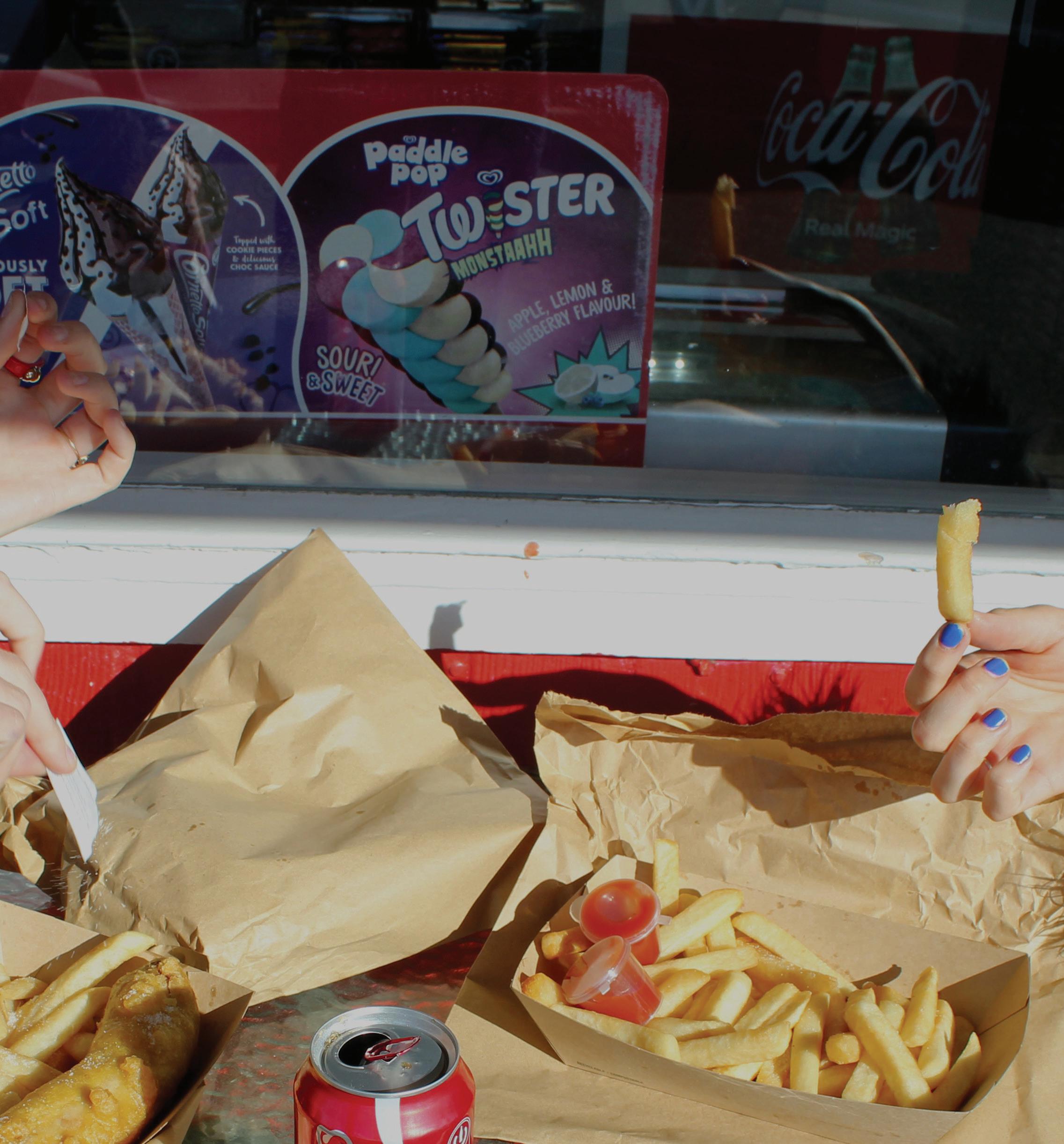
NEV Takeaways provides exactly the kind of F+C you would expect from somewhere so hard-case as the North East Valley. The goods are deep-fried within an inch of their lives, making for an inevitably grease-soaked experience embodying the hard-nosed worker treating themselves to Friday night takeaways. Eaten in about the most working class place in the NEV, the staff room at Ross Home (rest home), Critic felt compelled to quote Derry Girls, “Pizza’s not as nice.” Granted, everything is that horrid orangeybrown colour and you end up wiping grease on everything you touch, but for $7.50 it’s reasonably priced. Simply put, you aren’t a NEV local until you’ve tried ‘em and not died of a grease-induced heart attack.
Fish: 5.5/10 - $4
Chips: 4/10 - $3.50
Tahuna have a pretty tried and true formula, so it wasn’t a surprise to see that their F+C hadn’t changed much since last year. They have been faithfully mid for about 2-3 years now, but their St Kilda location combined with the dregs of old clout persist in making them a go-to spot. Now for a confession: this ideally should have been eaten on John Wilson Drive in a car with a view of the ocean. We couldn’t be fucked making the round-the-corner trip and
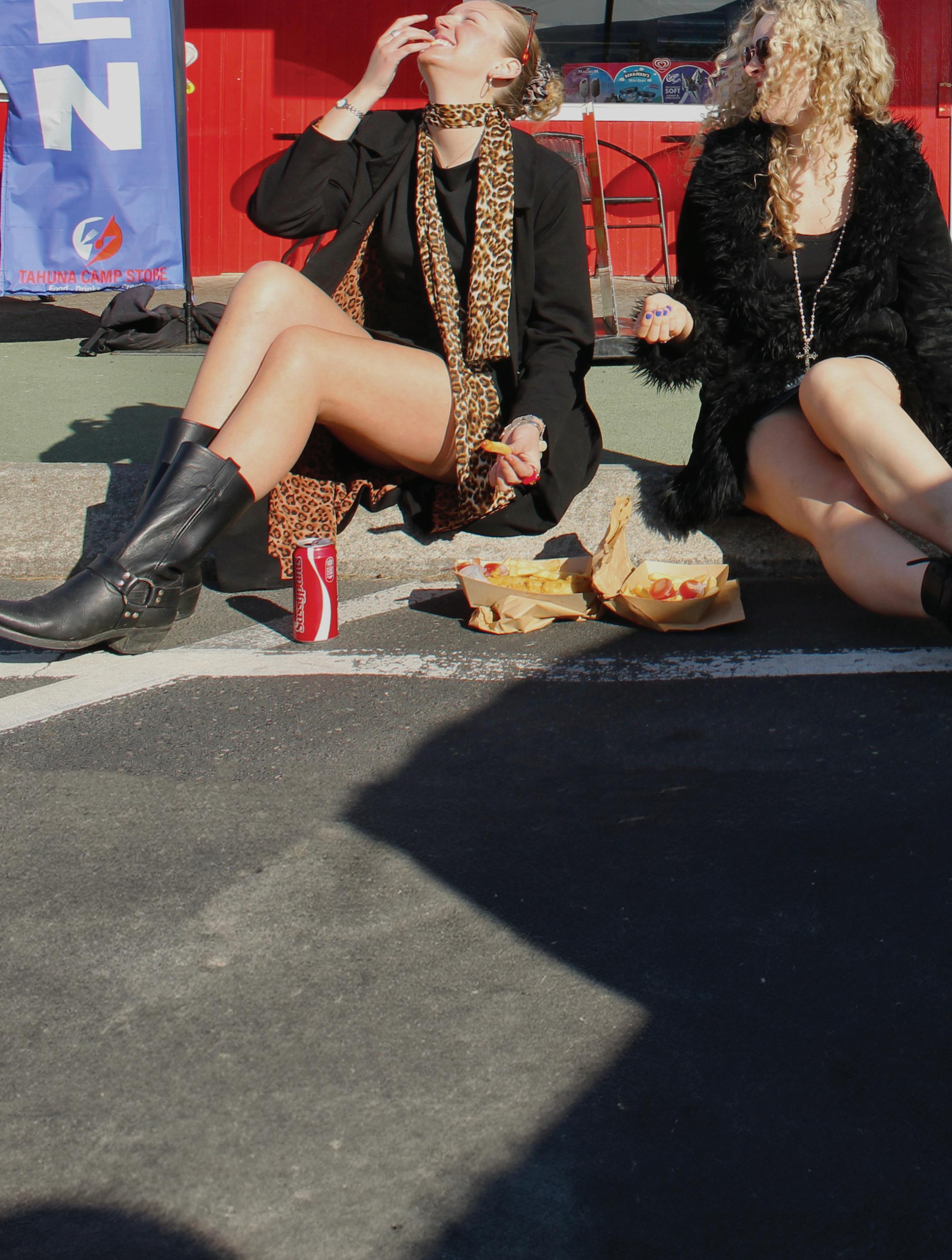
it was instead eaten on those rickety chairs outside the store. Sorry team. Objectively, we pin-pointed some quality issues with the overly crunchy batter, the thick soggy chips that leave you full after half-a-dozen, or the thin fish. Subjectively, however, I was finding myself falling in love with Tahuna Camp Store again. And maybe it was just the sun, the fact we’d had just been for an ocean dip, or the company that warmed our hearts. The review fell prey to sentimentality and noble thoughts about the hundreds of students who had mished out to Tahuna looking, not for great fish and chips, but for a feed and a momentary escape from the mind-fuck that is Studentville. For this, we are ever indebted to you, dear Tahuna.
Sneaky, sneaky. Marlow has changed their fish and chips dramatically! Last year they were the darlings of the review and now, nursing a rep from various fish and chip rankings, they have cheated the students and people of Dunedin by changing the formula. Outrage and rioting is on the horizon. The business model seems to have worked, with a 30-minute wait attesting to the shop’s commercial strength, but Critic no longer bows down to them. Eaten overlooking the Dinosaur park, the fish had a meek presence in the mouth and struggled to contend with the taste of the crunchy batter. The chips were Makikihi (a classic F+C
shop chip) but weren’t doing anything special for us. In its entirety, the experience was virtually indistinguishable from Tahuna Camp Store which is perhaps what they were aiming for given their close proximity. F+C shop lovers lament, another titan has fallen.
Fish: 6.5/10 - $6
Chips: 6/10 - $4
For years, torturous rumours have circulated of bliss to be found at the Fish-Inn. The only problem: it’s in Waikouaiti, a half hour drive north of Dunedin. Critic’s verdict? It’s bloody well worth it. Banging fish and solid chips erring towards the starchier side. The only problem was the hot dog which was alleged to be a 7/10, but then again, who in their right mind buys a hot dog from the F+C shop? [Editor’s note: The views expressed by writers in Critic may not always reflect other writers and Critic as a whole]. The fish was juicy but not greasy, tasteful without being overly fishy. It was likely just bog standard fresh Hoki but that’s a tough ask for the big-city F+C shops in Dunners. The meal was eaten on the side of State Highway One but you couldn’t hear the cars, you couldn’t hear anything, all you could do was see: the fish, the smiles on your mates’ faces, the beauty of fish and chips at large. Heck, someone get me a box of tissues. The Fish-Inn’s rep is deserved.
Fish: 8.5/10 - $6
Chips: 8/10 - $4.5
Petrol: $20
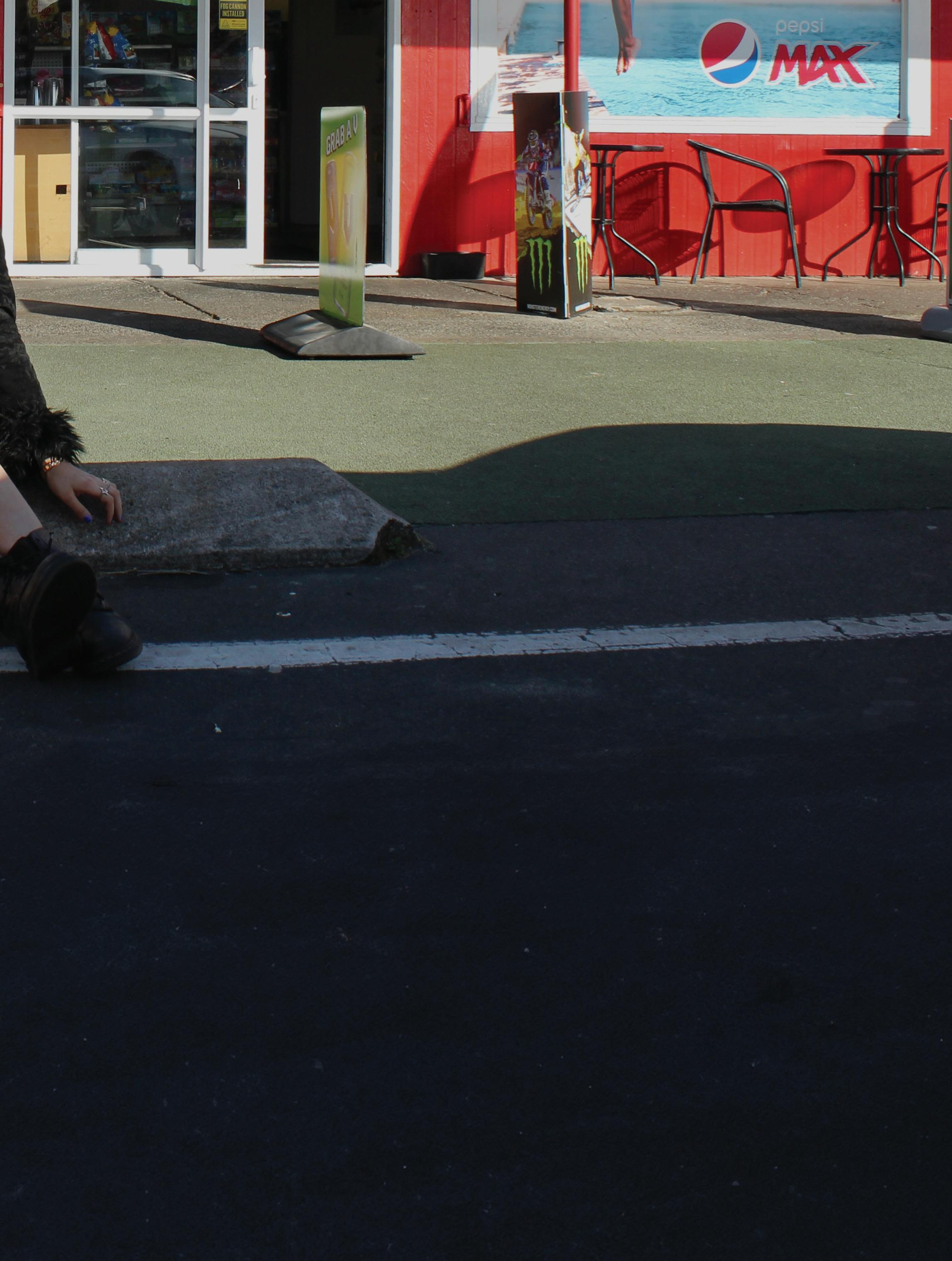
Eyyyy, one of the locals. Mei Wah have built on a solid showing last year and once again they have cooked up something banging, a meal enjoyed at the Botans of all places. While the fish’s batter is slightly too thick, the fish within has girth enough to match. What’s more, the fish falls apart deliciously and shines out at you like the sun reflected on the duck-pond. Chips are nothing to write home about, but elevated when you pick them straight out of the hole you made for yourself in the top of the paper packaging. Patience is for battlers. The Botans make for such an ideal spot of consumption. Post feed you can just food-coma on one of the benches up the top, to the delight of the frothy stoners and LSD users looking for someone to gawk at. Consistently solid, Mei Wah is one of the few shops determined not to let their guard down in the battle for supreme fish and chips – however tempting it must be when nestled on Fatty Lane.
Fish: 8/10 - $4
Chips: 6/10 - $4
It was a competition largely devoid of serious intensity with slipping standards being a common theme across the spectrum. The big news is Marlow falling off its pedestal. Fame got to its head and, like Macbeth, the crown was too heavy. Most of the student faithfuls are happy in their consistency, even if this is being consistently bad. The message is thus, probably, go for a mish (not to the beach) to get fish and chips or go to Mei Wah.
This whole review reeks of sentimentality but one would be hard-pressed to say many of the claims within weren’t true. It asks a fundamental question: do we love things for their meaning or do we create meaning out of the things we love? Perhaps it’s the latter, yet that doesn’t make the meaning any less true in the human heart. #deep, I know, but so are fish.


Every year, tauira Māori (students) from across the motu (country) gather under one roof for Te Huinga Tauira – the annual National Māori Students’ Conference. Hosted this year at the University of Waikato, the hui (conference) drew hundreds of tauira to celebrate culture, test their talents, debate pressing issues, and champion their identity on a national stage. For Te Rōpū Māori (TRM), the Māori Students Association of the Ōtākou Whakaihu Waka, it marked the end of months of intense preparation and the

beginning of five unforgettable days in Hamilton.
To trace that journey, we spoke with the beloved Tumuaki (President) of Te Rōpū Māori, Porourangi – also known as PouResident – and first-year tauira Jacqueline about the grind, the glory, and the kaupapa that binds it all together.
Nā Heeni Koero Te Rerenoa - Ngāti Hine, Te Waiariki, Te Rarawa
Porourangi TempletonReedy – Ngāti Porou, Ngāi Tūhoe, Tainui Jacqueline Te KaniNankivell – Te Aitanga-a-Māhaki, Ngāti Porou, Ngāti Maniapoto, Ngāpuhi

Preparing for Huinga is no casual affair. For tuakana (elder students) like Pou, it means juggling timetables, locking in budgets, motivating an entire rōpū (group), and keeping morale high – all while reminding everyone why this kaupapa matters, and working part-time jobs on the side. The year brought extra pressure when his co-President resigned after the first semester, leaving Pou to carry the responsibilities solo. As he put it, their campaign stretched across seven weeks of rehearsals, fundraising, and academic and hauora check-ins. Gruelling, yes – but it helped them “glue together as a whānau.”
And it wasn’t just kapa haka. Prior to the campaign for Huinga, Te Rōpū Māori poured relentlessly into producing and releasing their own EP – a testament to the creativity and sheer drive of tauira. The project, equal parts late-night recording sessions and collective passion, became a soundtrack to their preparations and another way to represent themselves on a national stage.
Behind the scenes, Pou noted that involvement in Te Huinga Tauira isn’t just about showing up. Students had to be tracking well academically, and participation came on top of everything else Te Rōpū Māori was already balancing. From the regular kaupapa at the TRM whare, to cultural hour evenings, the Māori pre-graduation ceremonies, and now an EP launch – Huinga was one more kaupapa in a long list, and a big one at that.
For Jacqueline, the build-up looked different. Fresh out of high school and in her first semester of Law and a Bachelor of Arts, she was still finding her footing at Otago when Te Huinga Tauira became her biggest kaupapa yet. The weeks leading up were packed: kapa haka practices, study wānanga (seminars), and late-night hāngī prep for fundraisers. “It helped turn strangers into whānau,” she reflected. Even when tired, the rōpū pushed through together – a crash course not only in kapa haka but in the whanaungatanga that defines TRM and its mission as a kāinga rua – a second home – for tauira Māori.
Her journey into Te Rōpū Māori began almost by accident. Encouraged by her sister and drawn in during O-Week’s Cultural Hour, Jacqueline’s first performance came at the Scholarship Dinner where incoming tauira were celebrated for their achievements. From there, the momentum was unstoppable – by semester two, she was shoulder to shoulder with her rōpū, preparing to carry the name of Ōtākou Whakaihu Waka on the national stage.
When Huinga finally kicked off in Waikato, the tempo only intensified. Delegates moved through days stacked with kaupapa – morning karakia (incantation/prayer) setting the tone, sports tournaments igniting friendly rivalries, careers expos and workshops sparking futures, and Ngā Manu Kōrero testing both intellect as well as courage. Add in iwi-off contests, the esteemed kapa haka competition, and the Te Mana Ākonga (the National Māori Tertiary Students’ Association) AGM, and the schedule was as exhausting as it was exhilarating. Nights barely slowed the pace, rolling into dance battles and the pō whakangāhau – the night of entertainment – where rōpū traded formality for pure celebration.
Tradition also anchored the week, from the first pōwhiri (welcome ceremony) to the final poroporoaki (farewell). Huinga also thrives on its “unofficial” customs – the ones that pull whanaungatanga into the fabric of the event. From merch swaps between student associations
to dart games, buddy challenges, first-years leading the haka, and the unspoken rule that nobody really sleeps – these are the moments that stick longest.
For Jacqueline, the kaupapa wasn’t about a singular highlight but the collective rhythm and “soaking up the whole atmosphere” – the laughter, the nerves, the late nights, and the pride of standing together.
The real buzz, Pou says, came from watching tauira step up into leadership roles across the week – whether standing as kaikōrero (speakers) in Ngā Manu Kōrero and poroporoaki, or stepping into the gumboots of Kaitātaki Tāne and Wahine – the male and female leaders of the performing group. While Te Rōpū Māori didn’t walk away with the top kapa haka title, they still made their mark – earning recognition for Te Mita o Te Reo, their whakawātea item, whaikōrero, and celebrating their Kaitātaki Wahine placing second overall. For Porourangi, it was never just about the points. His proudest moment came when a firstyear stood to deliver a whaikōrero (speech) before a packed audience. “It gives me hope that the mana and legacy of TRM will continue in future years to come,” he reflected.
Jacqueline’s highlight was more personal; Huinga was about finding her people. “I could see myself in this space for the next few years,” she said. As a first-year, being surrounded by hundreds of tauira Māori unapologetically celebrating themselves, it was as empowering as it was unforgettable. And when it came to what she valued most, Jacqueline didn’t hesitate. “The biggest thing I have taken away is the appreciation for my TRM whānau – everyone made an effort to look out for me as their teina,” she shared. “I feel like we all have each other’s backs, and have made life-long friends.”
More than just a conference, Te Huinga Tauira is a catapult – a stage where Māori student leadership is tested, sharpened, and launched. It’s where tauira maps out the future of Māori student life, and where the big issues surface: self-determination within universities, equity in education, and how to carry kaupapa Māori into spaces that often overlook it. These kōrero, shaped in wānanga and debated in AGMs, are what ripple out long after the pōwhiri and poroporoaki are over.
Porourangi has seen this cycle firsthand. After nearly a decade of Huinga appearances – four as a kaihaka (performer) and now as Tumuaki – he’s watched tauira cut their teeth in leadership, step into their own roles, and carry those lessons back home. Now, as he prepares to take that next step himself as a director on the Te Mana Ākonga board, his own journey reflects what Huinga is all about: passing the baton so the next wave can rise stronger.
For teina like Jacqueline, the spark has already caught. Jacqueline entered TRM wide-eyed and a bit unsure, and today she is gearing up for her first campaign for Te Rito – the executive for Te Rōpū Māori. “I came in fresh, not knowing much. But now I’m thinking – what could my role be in the future? Huinga lit that fire.”
As the dust settles, the mahi doesn’t stop. From kapa haka to kaupapa, sports fields to study wānanga, and even the recently released EP that TRM poured their all into – the grind continues. Te Huinga Tauira is never just one week in the calendar; it is a legacy in motion. A relay where each generation runs their leg, then passes the baton forward.

By Giorgia Fletcher, Hanna Varrs & Grace Verryt



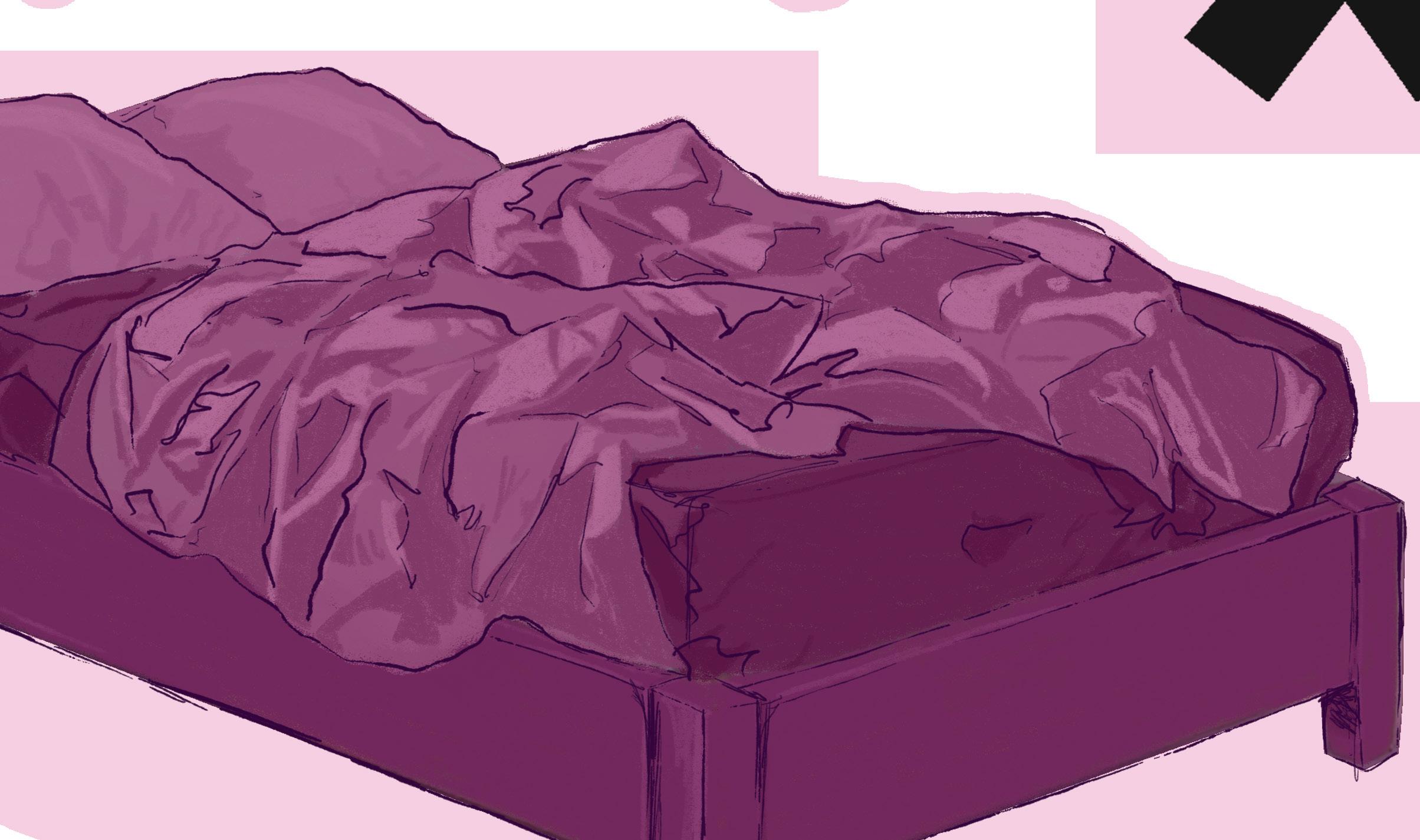


Sexual harm is prevalent, invasive, and underacknowledged on campus, whether we want to admit it or not.
Three weeks into the academic year, Thursdays in Black (TiB) – the Otago branch of a national student-led sexual harm prevention advocacy group part of an international movement –were inundated with disclosures. Disclosures happened at Tent City stalls, during club events, in town, and at parties. The exec received up to three confessions a week – each. Survivors weren’t the only ones seeking them out, but also concerned friends who were desperately grasping for any support they could find.
Many survivors didn’t know who to turn to for support, nor did they think their experience even warranted professional help. Charismatic young people were rendered distressed, traumatised, lonely, and in need of guidance. For the TiB exec, it was both overwhelming and heartbreaking to witness. Stories of sexual harm will always be crushing to hear, especially en masse. Something needed to be done. And so, TiB teamed up with Critic Te Ārohi (henceforth referred to as ‘Crib’) to bridge the gap from sexual harm to support services.
It shouldn’t be like this. Crib’s goals for this piece are twofold. We want you, as a reader, to understand that these are real people who are experiencing incidences of sexual harm. This has happened to the girl you sit next to in lectures. This has happened to that one dude you only ever see at parties. These are people who, in their realness, deserve love and care after trauma. Our other goal is to show you how rewarding support can be. It means putting yourself out there, it means doing what is difficult because you are a person who deserves to be cared for after what
A culture of casual misogyny and queerphobia, rampant alcoholism and drug use, and brushing shit under the rug, needs a mammoth shift to prevent sexual harm from occurring in the first place – something that groups like TiB work tirelessly to advocate for. But for those who’ve experienced harm on campus and have felt the trauma the brave interviewees of this feature shared, please know that support is available. Here’s how to find it.
Crib’s survey specifically focused on students’ experiences with campus-based support, but the conversation doesn’t end there. Beyond campus, there is an array of support to be found for survivors of sexual harm. Support services in Ōtepoti are listed at the end of the article.
To coincide with the introduction of the Sexual Misconduct Policy in 2019, the University of Otago commissioned the ‘Campus Climate Survey’ report to provide an overview of sexual harm on campus. The goal was to ascertain the baseline levels of sexual violence, its different forms, and students’ perceptions of the University’s handling of cases. The survey found that
60.4% of students had been sexually harassed by a peer and 31% of respondents indicated at least one experience of sexual harassment from a Univeristy staff member. Despite these stats, only 12.8% accessed on-campus support services, and ~18% had disclosed to a non-uni service or group such as the Police or Ōtepoti Communities Against Sexual Abuse (ŌCASA).
Te Whare Tāwharau was introduced not long before the Sexual Misconduct Policy. Opening in May 2018, Te Whare Tāwharau is the centre for sexual harm support services at Otago University. Survivors can expect support with welcome arms through the doors of Te Whare Tāwharau, tucked away on 5 Leithbank. Manager Hahna Briggs told Crib that they saw a total of 127 visitors at the centre last year, with fluctuating traffic depending on the time of year – an increase in March when semester one starts (and O-Week hits) and during exam periods.
Crib interviewed Associate Professor of Sociology, Gender Studies, and Criminology Melanie Beres for her expertise in sexual harm prevention on university campuses. According to her, Te Whare Tāwharau’s mahi encompasses what good support for survivors looks like: walking alongside the person and helping them to navigate support with as much autonomy as possible, and providing opportunity and space to debrief. Te Whare Tāwharau also helps to organise practical arrangements for students affected by sexual violence, such as special considerations during exams and extensions on assignments.
Another initiative of Te Whare Tāwharau are their HYBRID workshops to various University student leaders such as Kaiāwhina Whare, clubs and association executives, demonstrators, and tutors – those who have a formal role within our network of campus support. HYBRID stands for ‘Helping You The Bystander Respond, Intervene and Disclose’. HYBRID’s purpose is to empower attendees to be effective bystanders in their communities; to recognise potentially harmful situations and know how to intervene safely; and to prepare them with skills to respond to disclosures using survivor-led practice.
HYBRID is also delivered to “student-facing” services such as Campus Watch, who you’ll have seen at Castle St parties, breaking up scraps between breathas, checking on second-years vomiting in the gutter, and responding to radio call-outs to flat break-ins or otherwise. Security staff at places like U-Bar are not currently included in the training, but spokesperson for the University, Student Services Director Claire Gallop, told Crib that this is something that could be considered in the future.
TiB receives a lot of feedback that University processes in place to support and manage sexual harm can sometimes feel scary and shrouded in mystery. It can be difficult to admit to yourself what happened, let alone confide in strangers. You may not know what support you can receive, and worry that there isn't any. There’s yet to be a formal report on services for sexual harm support in the University since 2019, so rather than rely on old data, Crib conducted a survey of the current campus climate, knowledge, and use of support services. The survey was made available through Crib’s social media platforms and advertising in issues of Critic Te Ārohi in July and August.
Eleven members of our University whānau informed this article, from first-years to Kāiawhina Whare and tutors, who shared their experiences with sexual violence on campus. From them, we received a 100% response rate from cisgender women. Three identify as Māori, and ten as Pākehā students (with the option to multi-select ethnicity). Our results followed national trends of both women and members of the LGBTQIA+ community (90.1% in our results identifying as part of the community) being more likely to experience sexual violence. However, this is only a limited sample size and likely not fully indicative of the sexual harm issue on campus. The lack of men responding could be related to the difficulty in recognising harm and the embedded Kiwi culture of ‘manning up.’ The lack of gender diverse participants, who experience sexual assault at far higher rates than cisgender people, also limits our discussion.
Nine students told us their personal stories of harm – many occurring in first-year – and two student leaders (Kaiāwhina Whare and tutors/demonstrators) shared their experiences grappling with disclosures from those in their care. The stories we have recounted below serve as tools in the discussion around the prevention and support of sexual harm since 2019.
When she was a Kāiawhina Whare at a residential college, Bella* was the victim of a sexually abusive relationship, groomed by her Assistant Warden. After a previous relationship ended, she was burnt-out and lonely. She turned to a senior staff member for a supportive confidante. It spiralled into an invasive, controlling, and predatory sexual relationship. His sweet, playful, and attentive surface demeanour that she was initially drawn to was like “heroin” to her during her vulnerable state. Bella became so dependent on him for emotional support and validation that she felt as if she couldn’t survive without him.
“I am devastated that I was lured by the wrong person for support,” she said.
Trapped, Bella tried to end things with him multiple times, but was caught in a perpetual cycle of dependent abuse. Since he was her superior at work, she was also “cut off” from
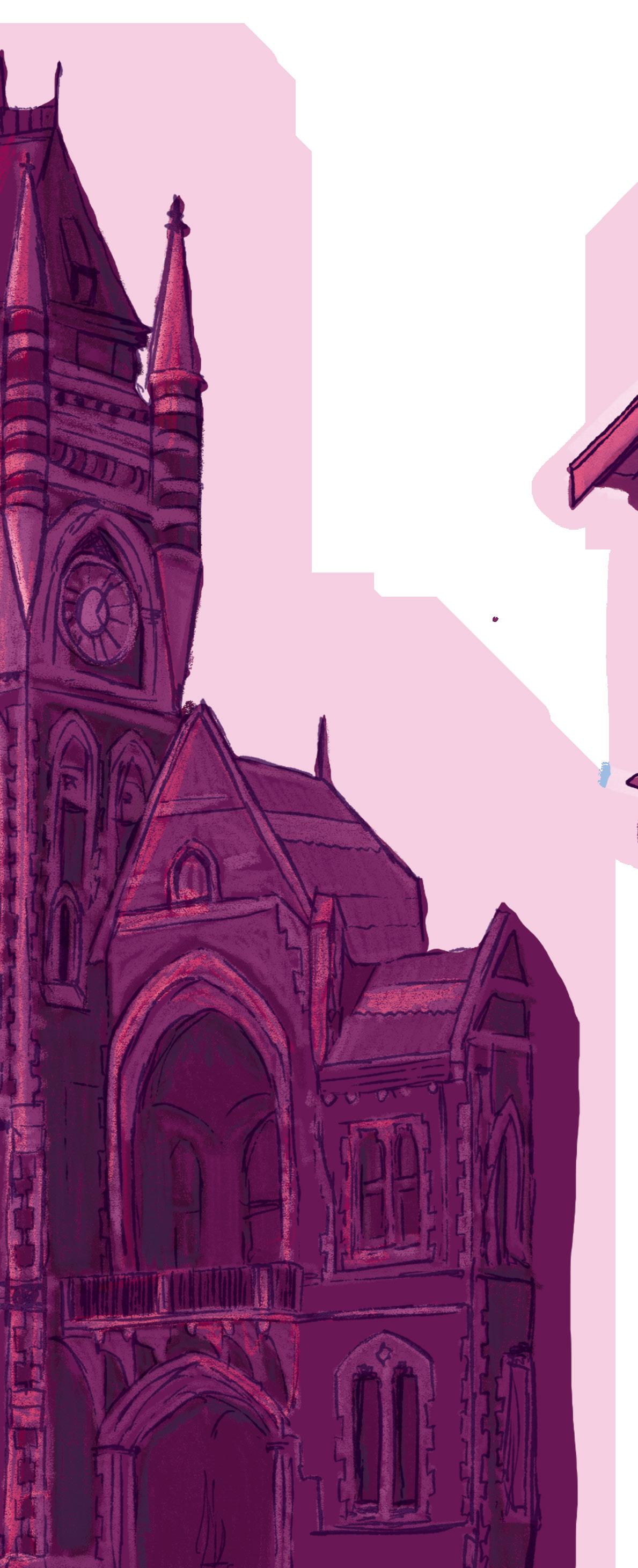
support systems intended to be a safety net. “When the abuser is part of the system you are disclosing to [...] That’s terrifying,” Bella explained. Any leak could’ve meant her abuser finding out, who was high up and had “so much power” over her life – both professionally and personally. “I was terrified that word would get back to him,” she said. “People yap and chat.” Plus, Bella was struggling to even come to terms with what was happening. “I didn’t know what grooming was. I didn’t know it was happening,” she said, describing the blame she would put on herself. “I believed I didn’t deserve help.” It was only after visiting Student Health for suicidal thoughts due to the grooming that support was found.
From an outside perspective, it can be difficult to understand why someone wouldn’t seek help. Later down the line, survivors are often asked questions like, “Why didn’t you say anything?” But at university, and especially in residential colleges, tauira navigating a complex web of social hierarchy find it difficult to determine what’s normal and how much discomfort to swallow to adhere to the norm, let alone muster up the bravery to upset the balance. Tauira in Crib’s survey spoke about the confusion of recognising coercion since it didn’t fit into the popular idea of what sexual harm is, meaning they didn’t report the incident to their hall. Another thought their experience was just “an odd thing that happened with a pushy guy”. For one student, she didn’t want to be known as “the girl who got assaulted”.
Upon being told about the theme of fear of disclosure in Crib's survey responses, Melanie nodded with familiarity. The issue of an invisible line that survivors or supporters have in their mind, a criteria that must be crossed before recognising that sexual harm has occurred and support should be sought out, is “nothing new”. From Melanie’s prior experience in other institutions, many would come through the door of support spaces saying, “I’m not sure I’m in the right place.” This wasn’t true. “They always were in the right place,” Melanie said, whether the harm was 10 years or 10 days ago.
After Bella approached Student Health, the staff went to the Deputy Warden of her hall to support a disclosure, who she said was “incredible”. Bella sat in the DW’s office for an hour as he talked her through what she later came to realise was sexual grooming. The talk helped her to believe it wasn't her fault. “Even though he had worked with my abuser as a colleague, when I disclosed to him, he immediately believed me and supported me,” she said. “The senior management staff within our residential colleges are truly some of the wisest and kindest people on the planet [...] My life would be very different if I had chosen a different office to go and cry in,” Bella reflected. “But I can’t go back. Only forward.”
Considering the perpetrator was a staff member, the reporting also went through a Human Resources (HR) pathway as outlined in the University’s Sexual Misconduct Policy. The Policy’s purpose is to provide a clear and consistent process for responding to disclosed incidents of sexual misconduct, and clarify options for support. Having accidentally let slip to Student Health the name of her abuser, staff then had a duty of care to follow HR protocol – subsequently taking a lot of the control out of Bella’s hands. It was a difficult pill to swallow. “I was still very much under my abuser's thumb, and I didn’t want to report him. After I gave my disclosure, it was a very abrupt end to my involvement,” she said. It was a “soul-destroying” process for Bella. To not initially realise the seriousness of the situation, feel a lack of control in the HR process, and later lose someone that she had felt so close to for so long was horrible. But despite this, she felt that Student Health and the HR processes that the University had to follow were the “right thing”. Bella’s abuser no longer works at the University.
After months of psychological and sexual abuse, Bella told Crib that being believed was one of the most important factors in her being able to move forward. “I could not trust my own reality,” she said. In the midst of a terrible and traumatising situation, Bella couldn’t express her gratitude enough for those she reached out to. Bella’s story involved a wide network of support, both on campus and beyond. “Student Health was incredibly helpful, they
honestly saved me [...] I could not have left by myself,” she said. “It took the blood, sweat, and tears of Student Health, my incredible Deputy Warden, my friends and my family, to pull me out of the pit of despair that comes from sexual harm and predation.”
Outside of the support she mentioned, Bella also went to Te Whare Tāwharau, was referred to OUSA Student Support, ACC Sensitive Claims for therapy, the Proctor and Human Resources (HR) for protective measures, and ŌCASA outside the University.
In first-year, Thalia* was sexually violated by a friend in her hall. One night, she’d returned home from a night out, drunk, and he was there – sober and persistent. He ignored her pleas to stop undressing her, refusing to leave, instead groping and attempting to finger her. Before he left, he took a picture of Thalia naked in her bed and sent it to her social media accounts.
Thalia went to Te Whare Tāwharau. You may recognise the name from the CommUNIty102 workshops that they hold for first-years each O-Week, visiting each hall one by one to educate students on the importance of consent. CommUNIty102 aims to bring to light what services and measures are available for incidences of sexual harm, as well as get students on the same page about healthy relationships and decisions around consent and alcohol – a key complicating factor in sexual harm. From Te Whare Tāwharau, Thalia was also referred to OUSA Student Support and Disability Information and Support.
While Thalia’s personal relationships crumbled during her experience, she said that she felt supported by the “great” staff at her hall. Thalia also noted that she didn’t feel properly educated about the types of support services available before the harm occurred, but did after the fact. This inability to recall services is common according to Melanie, who notes that sometimes the information doesn’t sink in until it becomes potentially relevant. “Structurally, the system’s there, but how we actually make sure that all the students who could use it are aware of it when they need to is tricky,” she explained.
Survivors working with Te Whare Tāwharau are given the choice of reporting their alleged perpetrator to the Proctor, who works within the framework of the University’s Sexual Misconduct Policy. While Thalia got the support she needed, it was not without struggles – particularly in regard to the Sexual Misconduct Policy and complaints to the Proctor.
Thalia was unhappy with the investigation of her claim, leading her to issue a complaint about the Proctor. There are some requirements a case must meet when reaching the Proctor, which Thalia’s case did – as it was non-grievous in nature. For any Proctor investigation, he only has the power to investigate “non-grievous” sexual misconduct. Anything grievous is out of the Proctor’s hands. At Otago Uni, grievous conduct is defined according to Section 128 of the Crimes Act 1961 as anything either attempting or amounting to sexual violation (penetration) or assault with the intent to commit sexual violation; or any other conduct or

alleged conduct which the Vice-Chancellor (acting on the advice of the Sexual Misconduct Action Response Team (SMART) co-ordinator) determines should be considered to be grievous sexual misconduct. Put differently, grevious sexual misconduct tends to be rape or attempted rape, whereas things such as verbal sexual harassment may be considered non-grevious. If the SMART co-ordinator determines conduct to fall into the grievous category, then it’s out of the Proctor’s jurisdiction for investigation.
The Proctor was excluded from investigating grievous sexual misconduct under the Sexual Misconduct Policy in 2022. Ben Nevell, SMART co-ordinator, explained at the time of his appointment that the decision was due to the Proctor not having the legal authority or resources to investigate allegations of grievous sexual harm. “It makes sense that [the Proctor’s] focus is on ensuring everyone is safe and well looked after, leaving the Police to carry out the actual investigation,” he said at the time. If the Proctor cannot investigate a complaint due to it being grievous in nature, support services are still offered and protective mechanisms can be put in place – such as rearranging timetables, or coordinating times both parties may visit University areas.
In Thalia’s case, the Proctor found no evidence to support her claim. She’s currently battling the University to formally complain about the Proctor. In response to any students’ distress over a situation like Thalia’s, spokesperson Claire Gallop told Crib that “[t]he University recognises the significant upset caused to an affected party whose complaint – brought forward honestly and in good faith – does not lead to a finding against a respondent.” Claire emphasised the University’s continued commitment to supporting complainants who found themselves in that situation, and noted a complainant's ability to make a formal complaint to the Police with the support of Te Whare Tāwharau.
Police advise survivors in ways they can progress a sexual assault report. “This can involve a formal interview, formal investigation, and potentially court as an outcome. We understand not everyone is looking for, or ready for a formal process, and we record and progress sexual assault reports in line with the victim's wishes,” Detective Sergeant Reece Munro told Crib. “Police value our close relationship with the University of Otago and Te Whare Tāwharau, to support victims and take their reporting in a direction catered for their specific needs to aid and support them.”
Cases of sexual misconduct are complex, as sexual harm is notoriously difficult to prove against standardised guidelines of harm. Much like with a court process, once a finding rules that misconduct has not been proved to the “necessary standard”, it’s “effectively final”. A complainant has no right of appeal, Claire explained to Crib, except in the case that an Appeals Board could see there was “absolute fundamental failure” in the original investigation. It’s like a judicial review process.
Claire noted to Crib that this is something that has “never [been] found to have occurred,” and they have a “high level of confidence” in the decisions made by the Proctor and Provost under the Sexual Misconduct Policy. “[They] bring to their roles a complete commitment to the goals of the Sexual Misconduct Policy and a wealth of experience.” Each decision made under the policy is also reviewed by an independent panel of three experts, convened by the SMART co-ordinator.
Another tension mentioned by a few survivors was the question of what happens when the perpetrator is in the same hall as the survivor. Hall staff have equal duties to both the alleged victim and perpetrator if both are residents. Claire told Crib that they will support those making reports while recognising the need for fair process – and this includes a right to be heard for those who are alleged to have committed acts of sexual misconduct. This was the case for Thalia. “[Halls] have an ethic of care, but because he was in my hall they have to care for him too,” Thalia explained. “He
threatened harm [to] himself and I became socially isolated. He got the support and I didn’t.”
Guidelines must be followed when managing a disclosure within a hall, starting with asking the affected survivor if they would like to disclose the alleged incident to the College Head so that pastoral care can be provided. If the survivor consents to disclosing the name of the individual alleged to have breached the Sexual Misconduct Policy – the ‘respondent’ – then the College Head will meet with them. There, they advise them of support services available, offering to go with them and explore the possibility of moving the respondent to alternative accommodation if required to ensure the safety and wellbeing of either the complainant, respondent, or other residents at the respondent’s hall. A number of “principles” inform whether protective measures might be placed on either party, including: the extent to which the survivor feels unsafe or uncomfortable around the respondent; the size of the hall; and the ability for staff to keep the survivor and respondent separate while living in the same hall. For example, whether separate meal times and living spaces can be arranged.
The consideration to both survivors and respondents is identified by Melanie as one of the most significant barriers universities face when encountering the issues that sexual harm raises. It’s a tricky thing to balance; drawing lines between what is acceptable and not, without “completely alienating” respondents. “If you alienate, then you are not involving [perpetrators] in prevention,” she explains. She stresses that it is important to remember that the respondent is still a “whole human”. The ability for universities to do this juggling act well also needs a “whole campus” approach, in which everyone – from the Vice-Chancellor all the way to students – need to “paddle the waka in the same direction” to create any meaningful culture change and “work at the broader levels as opposed to individual people.”
Claire told Crib that she is satisfied that all halls are committed to responding to complaints as fully as possible and with “full respect” to affected parties, even if those complaints are not upheld. “[It] is clear that the existence of such cases reflects the difficulty of making fair determinations in disputed situations, and not any lack of commitment to doing all that is possible for affected parties.”
In Cassidy’s* time working as a tutor, she has received at least six different disclosures of sexual harm from her students. Most came in the form of “written assignment content” that was handed in, but rather than homework, they were cries for help.
Depending on the context, she informed her course co-ordinators of disclosures and referred students to a range of support services. While Cassidy did what she thought was appropriate, she felt that she wasn't adequately trained in what to do after receiving a disclosure. “As tutors, we are only guided to tell students to go to support services if they disclose,” she explained. “No guidance is given on how to go about grading assignments which include disclosures and how to provide feedback when those assignments may not meet the student’s grade expectations.”
The University encourages tutors who have a query about responding to disclosures – such as disclosures in assignments, in Cassidy’s situation – to contact Te Whare Tāwharau for advice. “Some departments have Te Whare Tāwharau provide in-department training for their tutors,” Claire explained. However, mandatory in-person training is limited for all tutors due to capacity issues, so Te Whare Tāwharau are looking to develop an “online training resource” for staff to access.

With many cases of sexual harm occurring in halls, Angela* shared with Crib her perspective as a Kaiāwhina Whare who’s received a disclosure from a resident. During a conversation with another staff member, a first-year resident chatted to the pair about surface level interests before pulling Angela aside. During their private chat, the resident disclosed an instance of sexual harm, citing a need for emergency contraception.
The resident left before Angela could get her name, and passed on the information to her superiors. College processes mean that after escalation, Angela was in the dark about what happened to the resident. “All [Kaiāwhina Whare] can do is make sure the people needing support are getting it through useful channels and urge senior staff to act quickly and purposefully,” she said. But for Angela, she was left emotionally affected by the experience.
Angela didn’t use any support services. She felt that because she hadn’t been harmed directly, she wasn't the one needing support. In Angela’s predominantly supportive role, she thought that “needing additional support after giving support was a sign I shouldn't be doing the job.” It’s a common feeling from those in support roles, revealing the importance of Te Whare Tāwharau as a significant resource for supporters as well as survivors themselves. Sometimes difficult conversations – especially surrounding sexual harm – stick with you, but that doesn’t make an inadequate student leader or supporter. What Angela experienced is known as vicarious trauma, or secondary traumatic stress, which is a negative reaction from being indirectly exposed to another person's trauma. Keeping your mind clear and feeling good means you are in a better place to then help others; it's a measure of healthy boundaries and knowing how to keep yourself safe.
Since 2019, Te Whare Tāwharau has emerged as a central pillar in the effort toward building a safe and supportive environment for survivors of sexual violence at the University of Otago, offering compassionate, survivor-led care that empowers both those harmed and those who support them. However, the absence of a follow-up survey shows that there is still work to be done — and conversations to be had.
The stories shared by those within our University whānau show the real challenges survivors face, particularly when navigating systems that can feel complicated, unfamiliar, or isolating. From halls of residence to lecture halls, everyone has a responsibility to shape a culture that creates openness and support for those affected by such a widespread issue. While the support services are there for survivors (and tend to be regarded positively), their success depends on ensuring every student knows how to use them, and feels that their story matters when they do.
*Names changed.



Te Whare Tāwharau (0800 479 379) 5 Leithbank, Dunedin North, Dunedin 9016 – One unified space that provides sexual violence related support within the campus community.
Ōtepoti Communities Against Sexual Abuse (03-474 1592) - (Formerly Rape Crisis Dunedin) - all genders, survivors, whānau, friends, parents and communities Ōtepoti Dunedin Women’s Refuge (03 466 3220) – Dunedin Women's Refuge, tamariki programmes, women's advocacy, men's programme
Male survivors of sexual abuse Otago (03 425 8018) –Survivors of sexual abuse
Hohou Te Rongo Kahukura – Outing Violence - free, confidential, mana-enhancing support and recovery services for Takatāpui and Rainbow survivors of sexual harm. https://kahukura.co.nz/
Safe to Talk (0800 044 334) - Sexual abuse and harm support 24/7 helpline
Are You OK? (0800 456 450) - If you’re worried about safety in a relationship, call us
Te Puna Oranga (0800 222 042) – Kaupapa Māori individual & whānau services, including immediate 24/7 sexual violence crisis response and family harm support for individuals and whānau.
Victim Support (0800 842 846) – Free, nationwide support for people affected by crime, suicide and traumatic events.
Women’s Refuge Crisis line (0800 REFUGE) – Through our crisis line, we are here to help you 24 hours a day, 7 days a week.
Youthline (0800 37 66 33) – 12 - 24yr Helpline counselling, face to face counselling, community education, training, PD 1737 – Free, confidential 24/7 support for anyone, anytime. Help with well-being, brief emotional support, text or chat anytime.
Life Line (0800 54 33 54) – Safe, effective and confidential service to support the emotional and mental wellbeing
Tautoko Tāne Male Survivors Aotearoa (0800 044 334) – Sexual harm helpline accessible 24/7, and online resources available at tautokotane.nz
Police (105) (111). Dunedin Central Police Station, 25 Great King St. North Dunedin Police Station, 111 North Rd. South Dunedin Police Station 77 MacAndrew Rd

The alternative music scene in Ōtepoti is a passionate one, marked by a resurgence of punk and grunge and a growing allages scene. Third-year Polytech Communication Design student Ash McFarlane wanted his final project to be a love letter to the community that welcomed him. Stapled Noise is an introductory handbook into the alternative music scene in Ōtepoti. The notfor-profit zine entails interviews with prominent bands like IVY, The Beatniks, and Pearly*, alongside art and stories from the community that keeps the scene running.
Apart from being the creator, designer, and editor of Stapled Noise, Ash is a full-time groupie. He even laughed with Critic Te Ārohi about the time he went on a nationwide tour with a band he wasn’t even in. Through this project, Ash wants to show musicians in the alt music scene “justice through the means of a physical publication”. With so much mahi going on behind the scenes and bands coming and going with the cycle of their three year degree, Ash chose to capture a “snapshot” of what the music scene is like at this very moment. The aim is for it to be directed both as a thank you to bands and a resource for new punters in town.
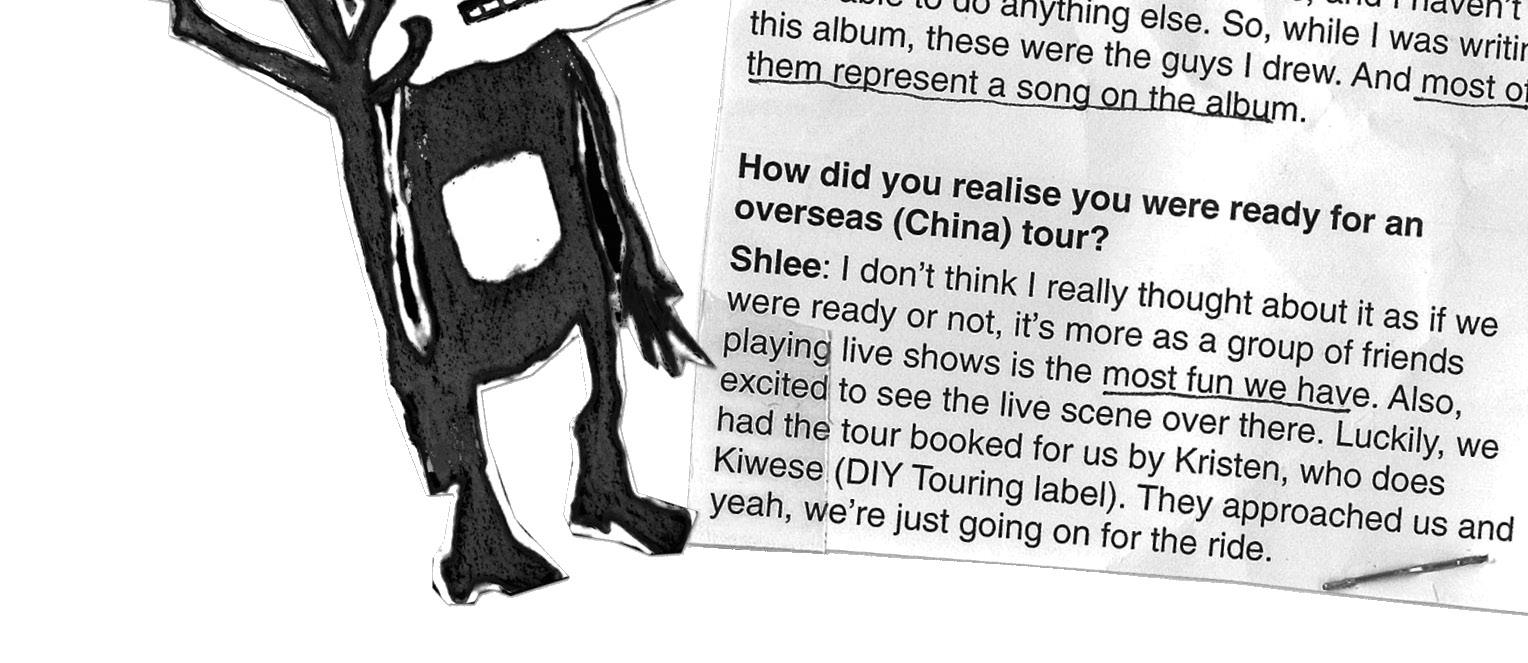
Ash moved to Ōtepoti without knowing many people. But like all freshers, he was dragged out to town by his flatmates. "It didn't take long to realise that it wasn't really my thing," Ash shrugged. While Ōtepoti’s alt music scene is prominent, Ash was unaware of its existence until he was reeled in by one of his mates, Caleb, who plays for Vagina Dry. Things snowballed from there. He jokes that the idea of Stapled Noise is to give newcomers their very own Caleb. “If you don't have the opportunity to meet Caleb Tulloch, you can have this book,” he laughs.
Just like that one Shakira song in Zootopia, Ash encourages newcomers to Ōtepoti to try and experience everything – whether it's Pint Night, Castle St flat parties, Suburbia, or a gig at The Crown. There's a place for everyone to let loose. Ash believes that the alternative music scene is a great substitute for student party life. “[It’s a] culture where you're more there for the music rather than getting drunk,” he says. It is also a part of Ōtepoti’s culture that needs to be preserved.
In an apparent poster crackdown, the Auckland Council has been telling independent promoters to stop putting up gig posters up in the CBD without approval. Ash fears that this crackdown could extend to Ōtepoti. In protest, Ash has dedicated a section in the zine to a step by step guide of how to poster up, including a "recipe book” of how to make wheatpaste – a natural glue-like substance used to paste up posters. Ash believes poster walls are proof of a city's life and an important “form of art and communication.”
If a credit scene were to roll on the zine, Ash’s name would dominate the key roles, but he made sure to clarify it wouldn’t be the only voice represented in this zine. Stapled Noise has received contributions from many members across the community, including illustrators, writers, editors, and interviewers. He also thanks the bands and venue owners who took the time out of their day to be interviewed.
While the magazine is finished, it has not been printed yet. Ash aims to supply the zine around campus, cafes, and venues for punters to pick up, free of charge. But printing a magazine does not come cheap. To raise funds for the project Ash is running an all-ages fundraiser gig at Yours Cafe on Friday the 26th of September, featuring bands U-No Juno, Vagina Dry, and Motheaten – all bands highlighted in the zine. Ash has also teamed up with Boosted, Aotearoa’s only crowdfunding platform dedicated to the arts, to fund the printing process. To up the stakes, if the page doesn't reach its target of $4000, all the donors will get their money back. At the time of writing, the project has already received $2,185 doubloons.
Scan the QR code to access the Boosted page.




BY
G’day cunts and cuntesses, shrimp on the barbie and all that. This week's booze reviews is Great Northerns, the official beer of drink driving to K’gari in your old man's ex mine 70 series landcruiser. But it's okay, ‘cos it’s not like driving on the beach at low tide counts as a real road.
As is standard with stuff from our mates across the ditch, Great Northerns are pretty much just a poor imitation of the New Zealand version. They taste a lot like if you mixed a Gold Medal Ale, a Summit and a little bit of water which, whilst incredibly pleasant, was a little bit lacking in the ABV department. The alcohol felt borderline flushed away, but somehow it’s the same strength as a Summit – its closest comparison, I’d argue.
make sure to get roasted & unsalted
Although it tastes a bit watery, the larger can does allow for more efficient funnels (big tick from me). It’s deceptively burp-inducing, mind you, and if you don't wait long enough you can end up with one of those horrifically wet ones when you feel like you may have a bit of a chunny. While lacking in the flavour department, Great Northerns are actually a shockingly good beer, being able to walk the line between being a Friday arvo sipper and a punch-on-andget-it-done beer.
Unfortunately, I can also confirm that it is possibly the most pleasant beer I've ever had come back out the way it came, as following a 6-pack and various other beverages (beer before liquor, never sicker) it did the closest thing it could to closing the door on its way out that a beer could. Big ups to those mad bastard Q ueenslanders for working out how to do that.
Tasting notes: Normal beer, but less Pairs well with: Nosebleed section by Hilltop Hoods, sleeping on a beach around a bonfire Scullability: 10/10
Hangoverness: 5/10

This sundried tomato orzo is a little creamy, a little indulgent, and a lot tasty. Providing a super hearty and delicious dinner, the whole flat can enjoy this one. Delicious heated up the next day for a cheeky lunch which is a bonus - that is if there’s any leftovers ;) thank me later x
1 medium onion (finely chopped)
(finely
(optional)
Step 1. Place a large pot (that has a lid) over medium heat with approx. 2 Tbsp of oil in the bottom.
Step 2. Once the oil is hot, add the diced onion with a pinch of salt, and cook for 5 mins until the onion is soft and golden.
Step 3. Add the garlic cloves, oregano, paprika, and a pinch of salt and pepper. Stir through and cook for a further 3 mins until fragrant.
Step 4. Stir through the risoni/orzo pasta, until it is coated in the oil, spices and onion. Cook for 4 mins.
Step 5. Deglaze the pan by pouring in the wine and allowing it to cook down for a further 3 mins.
Step 6. From here, add the vegetable stock, and place a lid on the pot. Bring the heat down to medium low, and simmer for 10 mins until the pasta is cooked. Ensure you stir frequently to prevent the pasta
2 tsp dijon mustard 145g sundried tomatoes (drained and roughly chopped) 120 g baby spinach
By Ruby Hudson

Attention spans are cooked, the world is moving at lightning speed, and you only have so much time to dedicate to keeping up with current affairs before we’re onto the next bombshell moment. You can barely sit down for a piss without refreshing your phone, and expecting students to listen to a long-form podcast on Charlie Kirk’s career that offers a rounded perspective is optimistic at best.
Enter short-form media. TikTok, Instagram Reels, and a 300-word Debatable in a student magazine meet people where they are. No one is saying that a quick 90-second video on Kirk’s shooting will unpack the whole political history of American conservatism, but it will give you the basics: who died, why it matters, and what the immediate reactions are. Same with Tom Phillips – not everyone’s trawling through Stuff archives, but a digestible reel might get them engaged enough to dig deeper.
Short-form isn’t a replacement for long-form, but it is a gateway drug. It’s the summary that gets you up to speed in a tutorial discussion, or the link your mate drops in the group chat so you don’t sound ignorant at
pre’s. Pretending students will do “the full reading” on world events when they’re already struggling through their Politics readings is a hard ask.
Complex stories like the ones that have dominated news feeds don’t fit in TikTok’s 60-second algorithms that feed on hysteria, and pretending they do just cheapens them. A short-form summary of the Charlie Kirk shooting risks reducing it to “lol conservative dies by gun”, one stripped of nuance, context, and the wider problem of political violence. Likewise, turning Tom Phillips’ death into an explainer carousel risks flattening the human tragedy into a bite-sized scroll moment between latte art reels.


There’s a reason we still need long-form journalism, documentaries, and in-depth reporting. Big stories deserve time, detail, and nuance. Otherwise, you end up with audiences who know the headlines (clickbait ones, increasingly) but nothing else – much like first-years who’ve read the lecture slides but can’t explain the reading.
And honestly? The speed of short-form culture encourages hot takes, not careful thought. It’s easy to hop on the bandwagon when you’ve been bombarded with content reinforcing one take, stuck in an echo chamber of a particular ideology. When the reward is clicks and virality, the goal shifts from “do this justice” to “make this snappy.” That’s not journalism, that’s PR. Apply those tertiary education skills of critical thinking, deep dives, nuance, and academia for the good of our country’s future.
By Lady Jane Grey
On today’s episode of scandalous sex stories, we bring you the thrilling timing of a Greenpeace phone call.
My girlfriend and I had been dodging their calls for weeks. “Do you have time for a quick chat about the cost of the climate crisis?” “No sorry!” we’d say in perfect unison, smug in the fact we’d already donated and signed the petitions. We thought we were safe.
Fast forward and we’re waiting for an important call from a potential employer so, like socks during sex, the ringtones stay on. Of course, this is the exact moment we’re butt-ass naked—a bundle of boobs, thighs, and slippery hands—while she’s working a neon pink toy inside me with the kind of focus usually reserved for bomb defusal. I’m seconds from orgasm, biting down on her shoulder when suddenly… the ringtone cries out, stealing my line.
We leap up, hearts pounding, convinced it’s the job call. Instead, a chirpy voice greets us: “Hi, this is so-and-so from Greenpeace! Do you have a moment to hear about our current campaigns?”
My legs were still shaking, but this woman would not take “no” for an answer. As this stranger lectured us about environmental collapse with the passion of a priest on Easter Sunday, the pink dildo remained parked between my thighs. I swear she rattled on for seven whole minutes—long enough for me to have orgasmed five times, but instead we sat there, phone muted, giggling silently like she could hear us.
Don’t worry, we picked things up right where we left off after a quick water break. The planet may be dying, but we weren't about to let that stop us.
Lesson of the Week: Put your phone on silent before sex. If the world ends while you’re mid-orgasm, you’ll find out after.

HAVE SOMETHING JUICY TO TELL US? SEND YOUR



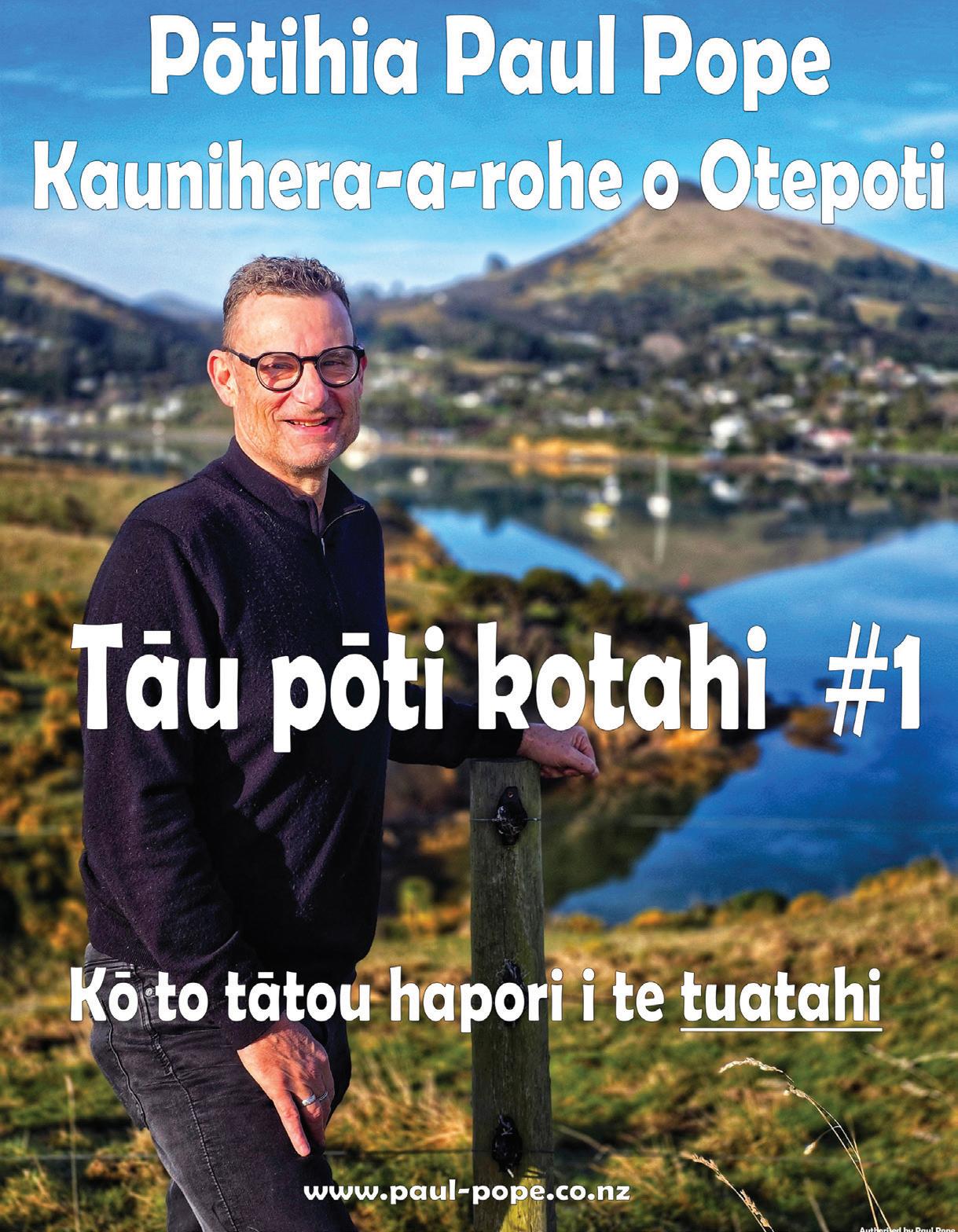
Try to be present this week. You're exhausted and that makes it easy to check out. But your friends have put a lot of effort into seeing you and checking up on your wellbeing, so don't do them dirty by being uninterested in their lives.
Your Biggie’s Pizza Order: Victoria Beckham pizza
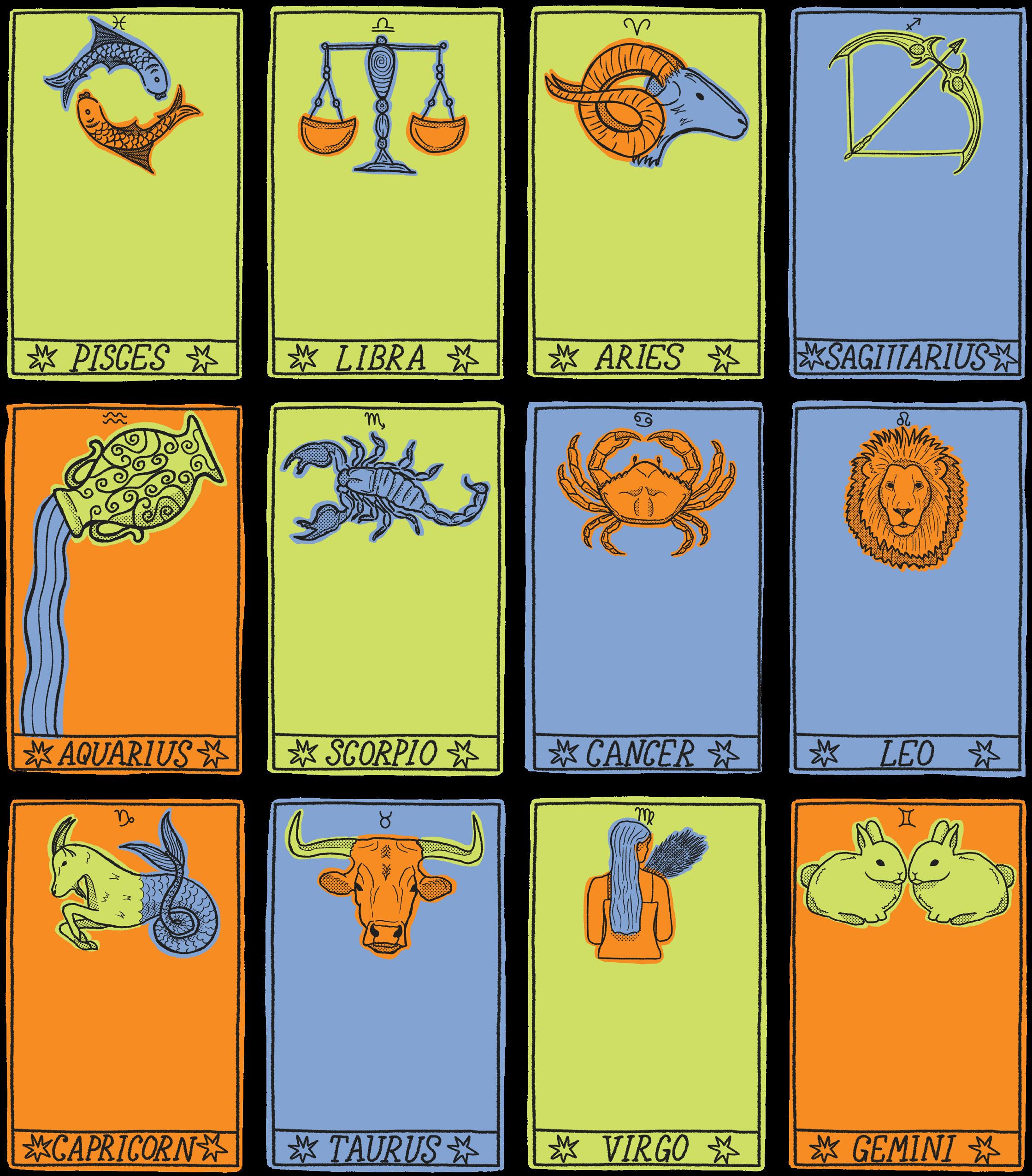
Get in touch with nature, and not just the Botans. Go out and explore the parts of Ōtepoti that you have never seen before. Your time in Dunedin will be over before you even know it and that is going to get you down, so make sure that you aren't left wondering what parts of Dunedin are like.
Your Biggie’s Pizza Order: Danny DeVito pizza
Food isn't just something that stops you from being hungry, it is fuel for your day. Make sure you're getting in your 5+ a day, because we all know you love to smash back a couple of packs of two-minute noodles.
Your Biggie’s Pizza Order: 100 bag of chicken nuggets
It's finally time – time to change your goddamn sheets. They are getting so crusty and musty that they are negatively affecting the general smell of your bedroom. Ain't no one gonna want to get in the sack with you if there are toast crumbs.
Your Biggie’s Pizza Order: Deep fried camembert
This week you will see a lot of dogs. Take every dog as a sign that you are on the right road to get to your dream end goal.
Your Biggie’s Pizza Order: John Candy pizza
Maybe drink a little less. I’m not your mum but the stars have told me you enjoy the drink a little too much…
Your Biggie’s Pizza Order: Jack Black pizza
You have been putting a lot of work into a secret project and this week you will find out how you've been doing. Celebrate hard if it goes well, but in the case it flops don't get yourself too down. Not everyone can succeed.
Your Biggie’s Pizza Order: M&M Triple Choc Cookie pizza
Not all love is lost. While you feel like you have lost a relationship with someone you love very much, really the relationship is just changing and catching up with where you are in your journey.
Your Biggie’s Pizza Order: Lemon pepper wedges
You think that money will chase you, but it won't. Right now the bank account is looking a little sparse and you might need to think before you tap your card for the next few weeks.
Your Biggie’s Pizza Order: Tom Hanks pizza
You're a raging bull this week; everything you want seems to finally be within reach. Take what you can but don't bowl through others to get there.
Your Biggie’s Pizza Order: Salt & pepper squid
Virgo, the past month has been tough. Around every corner seemed to be a wall, ready to stop you in your tracks. A hug or 12 is just what the doctor ordered in this situation.
Your Biggie’s Pizza Order: Oprah pizza
Gemini’s are talkative and social creatures, and this week you are the stereotype. Your calendar is full to the brim with 21sts, engagement parties, book launches and everything in between. Make comfy shoes your number one priority when getting dressed this week.
Your Biggie’s Pizza Order: Nigella pizza






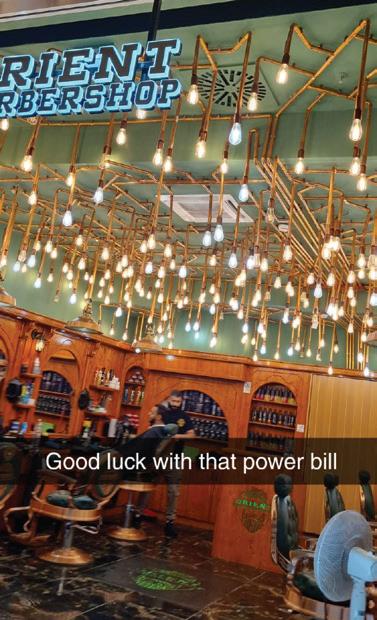


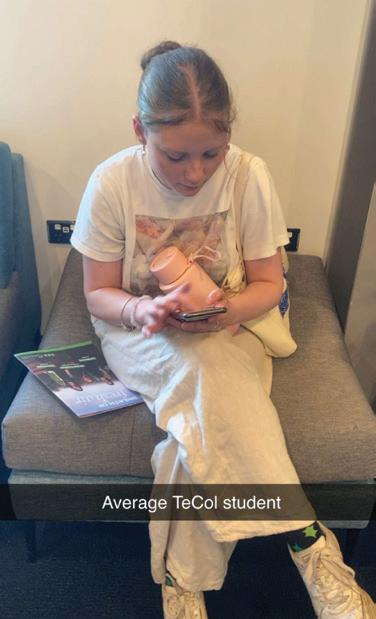

Every year students have plenty to say about OUSA, and don’t get me wrong, that’s exactly how it should be. But if you’ve got strong opinions about who should be leading and advocating for you in 2026, the best way to make sure you’re heard is to vote!
The Executive isn’t just a group of names on posters. We’re the people making decisions and taking actions that shape your student experience. From clubs and events to advocacy and support. Who you choose directly affects what OUSA does next year. Voting is quick, simple, and matters more than you think. It opens Monday the 22nd at 9am and closes Thursday the 25th at 4pm. Just head online, find a voting booth, take a few minutes, and back the candidates who you believe represent you and your values.
Even if you didn’t run this time, you still get a say in who’s at the table. Don’t leave it to chance, your vote is how you make sure the Exec reflects what students actually want.
This is your OUSA. Make sure your voice counts. Vote*.
Amy Martin Admin Vice President
*Voting is accessed via the OUSA website (voting.ousa.org.nz)
